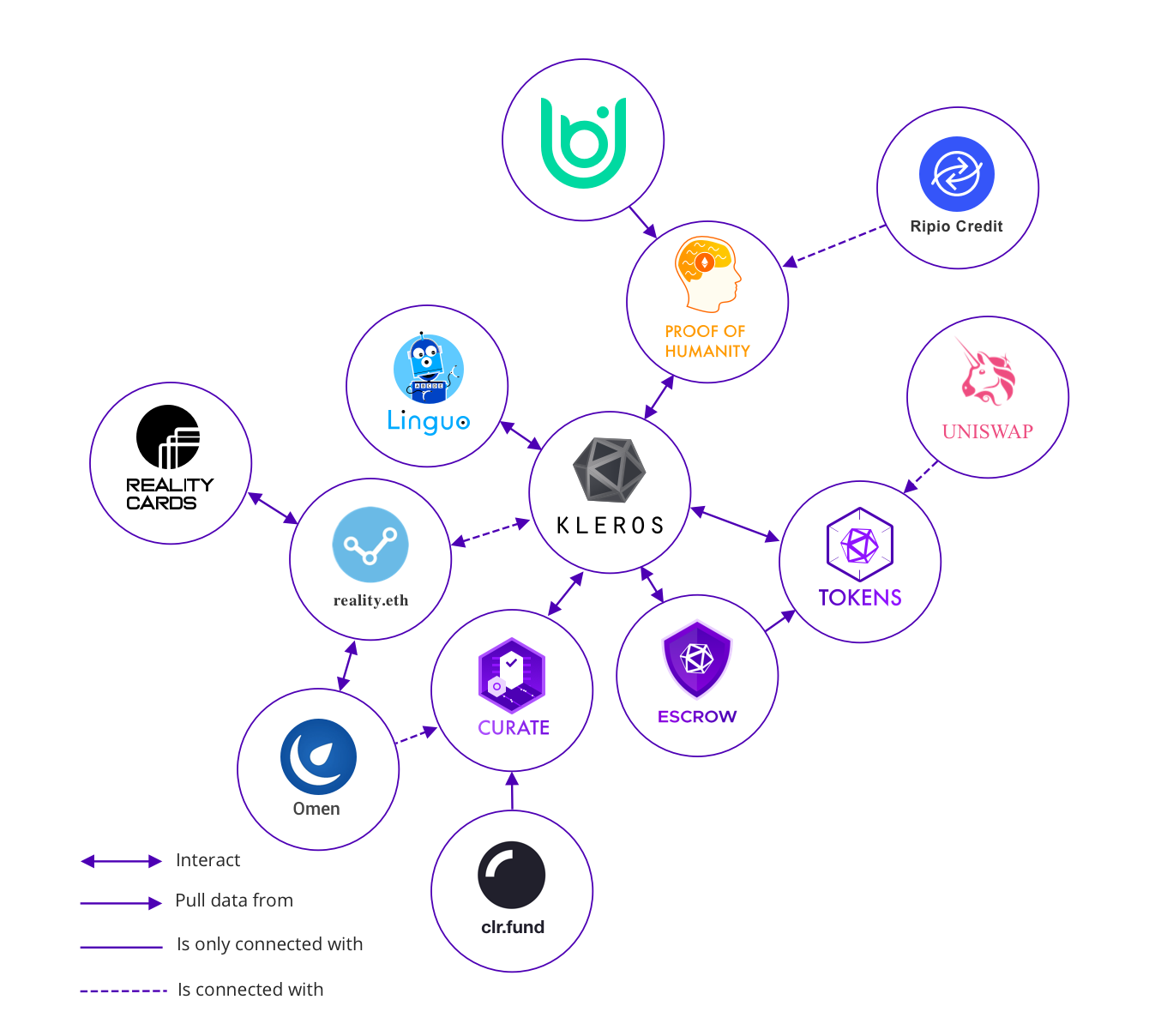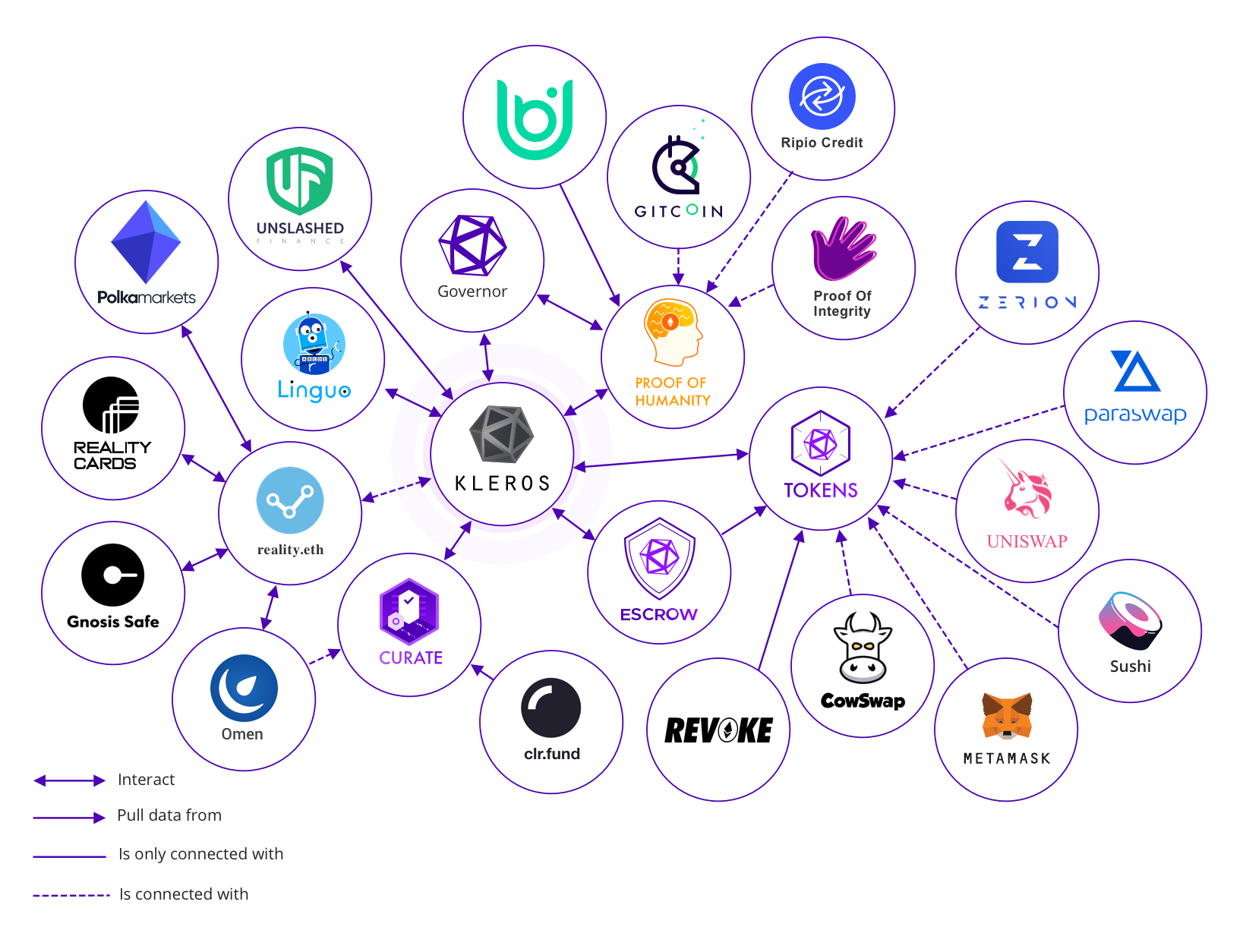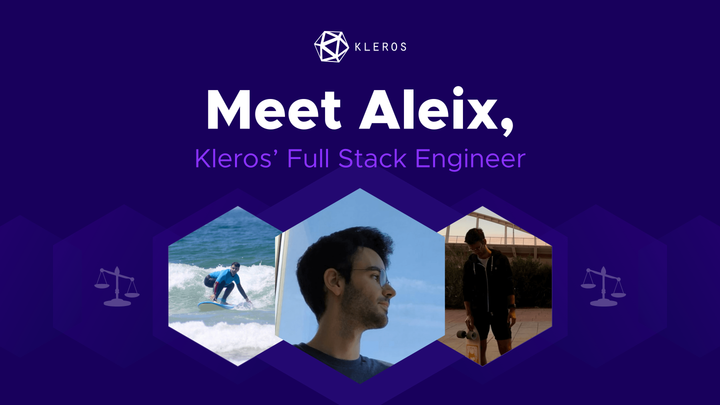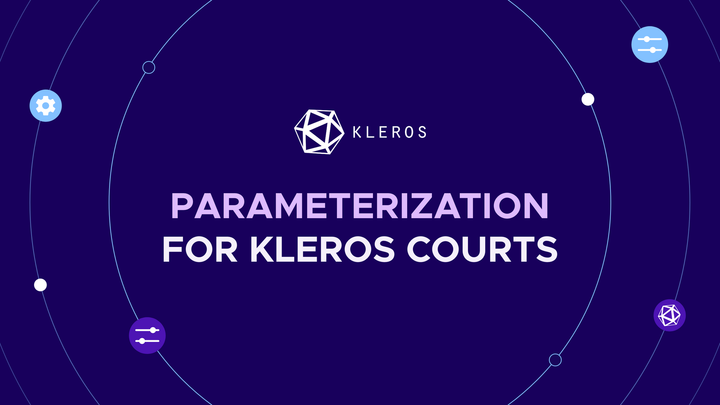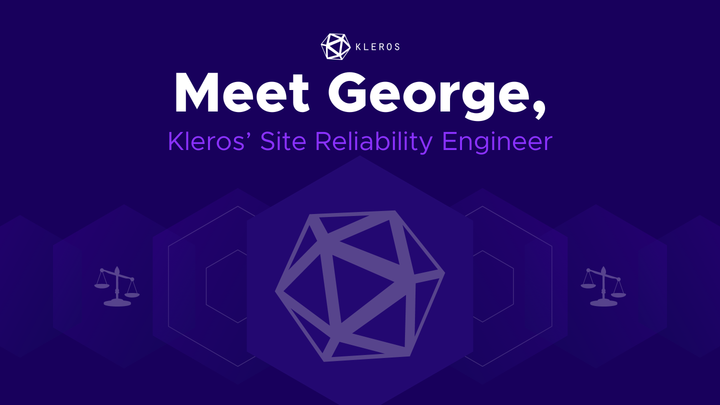Kleros Project Update - February 2022
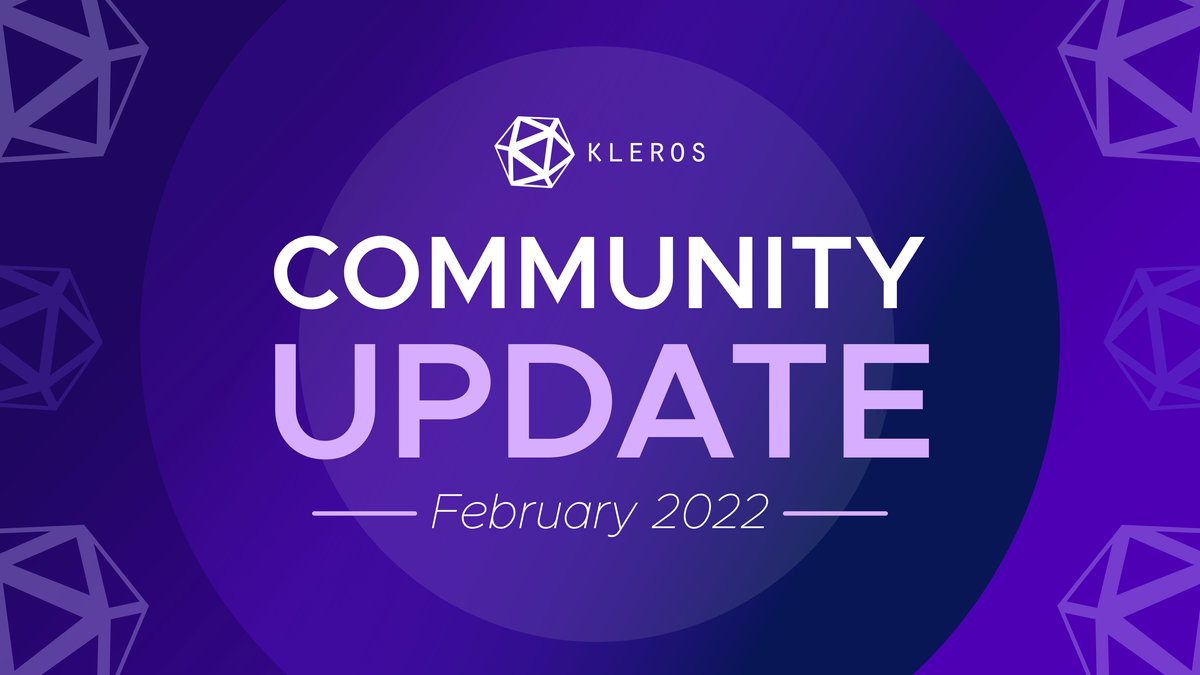
It has been a while since our last comprehensive Community Update. During this time, the team at Kleros has worked harder than ever to develop and release new products, garner support for our rising movement, expand our team, and so much more.
Main Events of the Past Six Months
May 2021
- OpenDeFi becomes the first DAO to decentralize its governance through trustless proposal enforcement secured by Kleros.
June 2021
- Polkamarkets announces that Kleros will resolve its prediction market disputes.
- Community member Green launches Vagarish, a new search engine for Kleros cases.
- An updated version of the Kleros Yellow Paper is published.
July 2021
- Kleros launches on xDAI (now Gnosis Chain).
- Unslashed Insurance is added to Kleros integrations.
- The Kleros team participates at the EthCC conference in Paris.
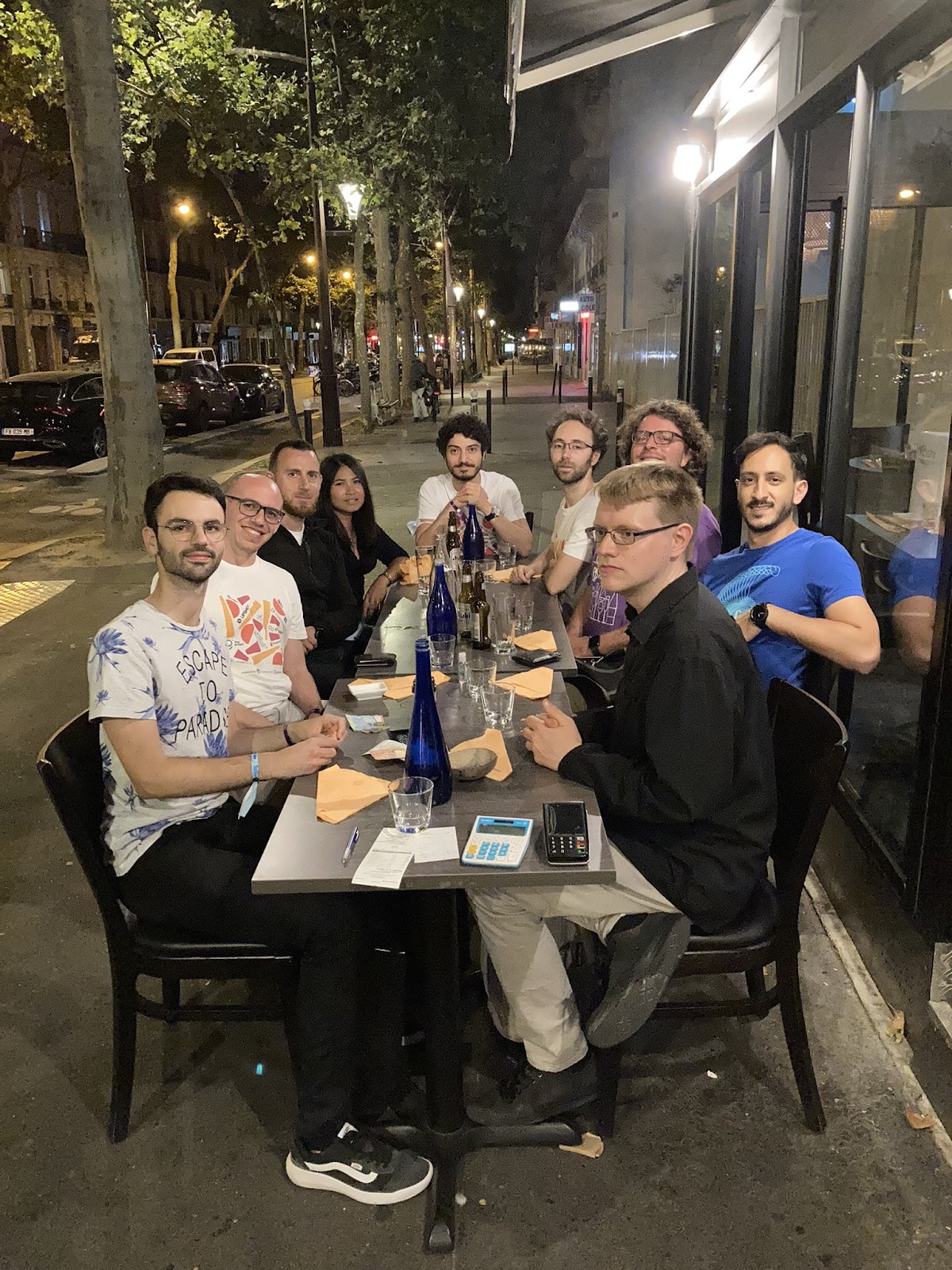
- Launch of the Kleros Incubator.
August 2021
- Kleros and HatsFinance announce a collaboration for securing bounty programs.
We're delighted to welcome @HatsFinance to the ever growing Kleros ecosystem.
— Kleros (@Kleros_io) August 24, 2021
Hats off to you! 🎩🙏
⚖️ https://t.co/OcW7tF64a3
September 2021
- Kleros Tokens Dapp goes live on ParaSwap.
.@Kleros_io Token Lists is now live in https://t.co/409dBxOaNF
— ParaSwap (@paraswap) August 27, 2021
Enjoy the decentralized listing of ~1000 tokens 🔥
Learn more here https://t.co/KobCJcSKl1
Big thanks to @JimmyRagosa for the 🪄 pic.twitter.com/grFOWF4v1W
October 2021
- A Mexican court accepts a Kleros ruling as valid under Mexican law. This is the first case ever resolved by blockchain arbitration to be accepted in court.
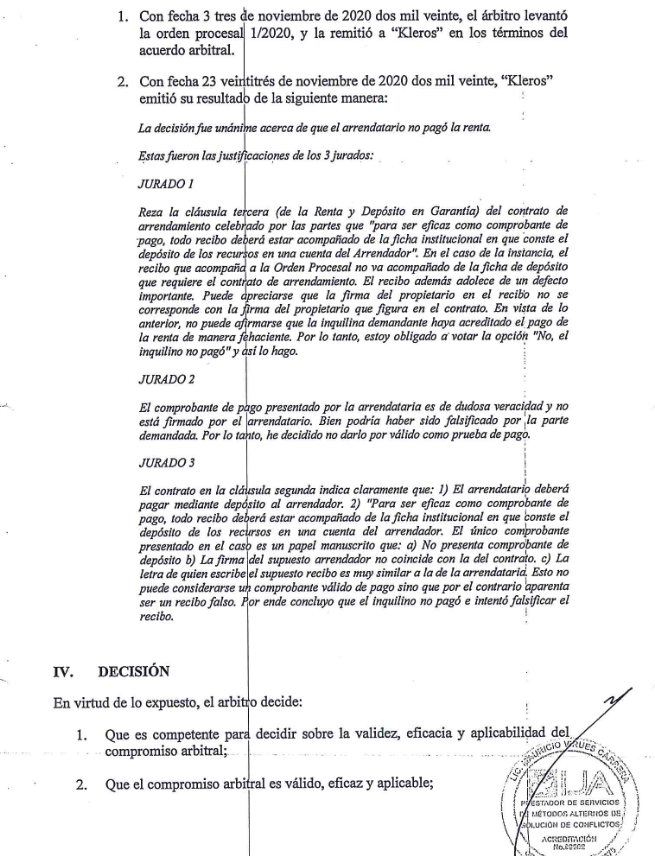
- Launch of the 5th batch of the Kleros Fellowship of Justice program.
- Kleros Tokens Dapp surpasses 1,000 registered tokens. It’s currently being used by DeFi apps such as Uniswap, ParaSwap, SushiSwap and Zerion to offer a more secure service to their users.
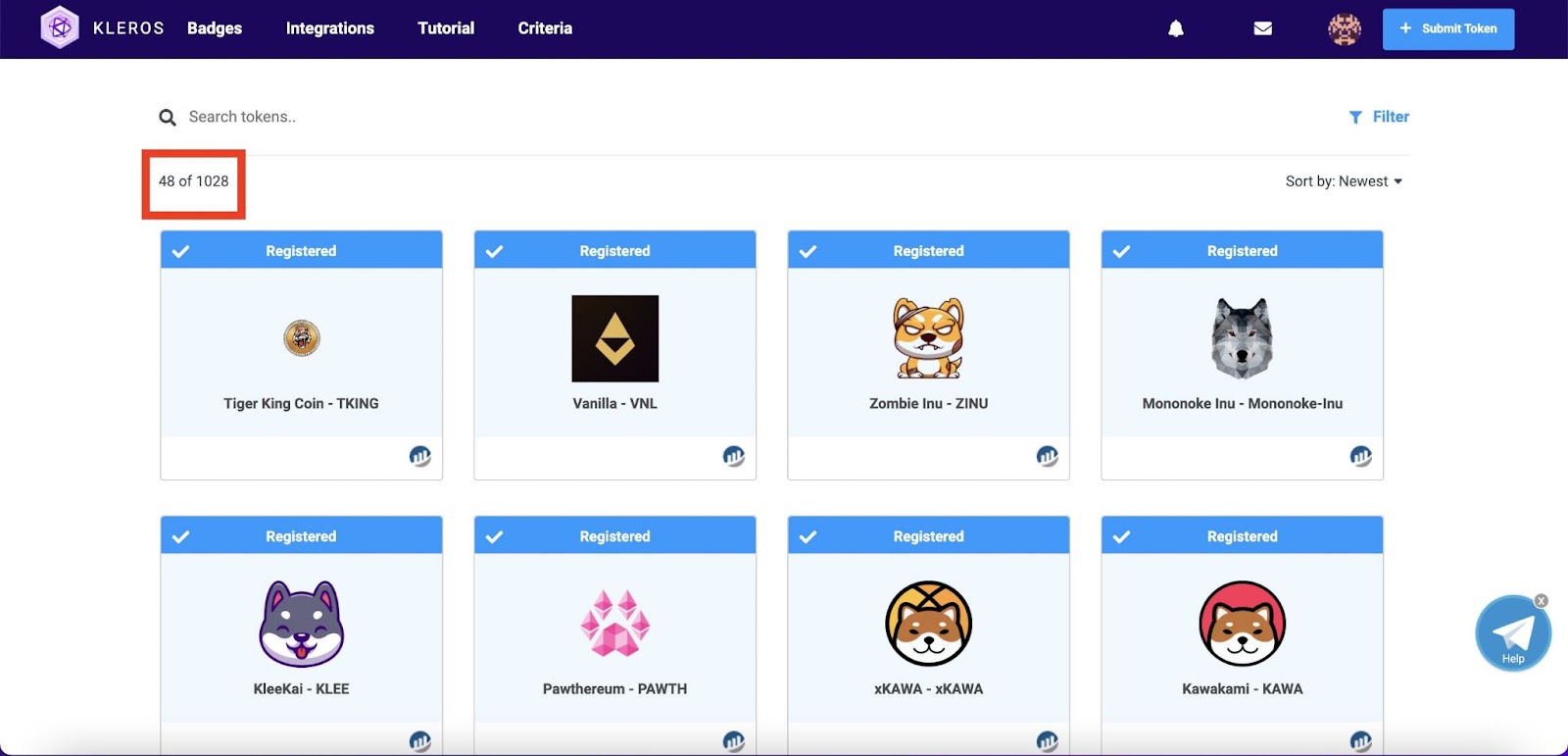
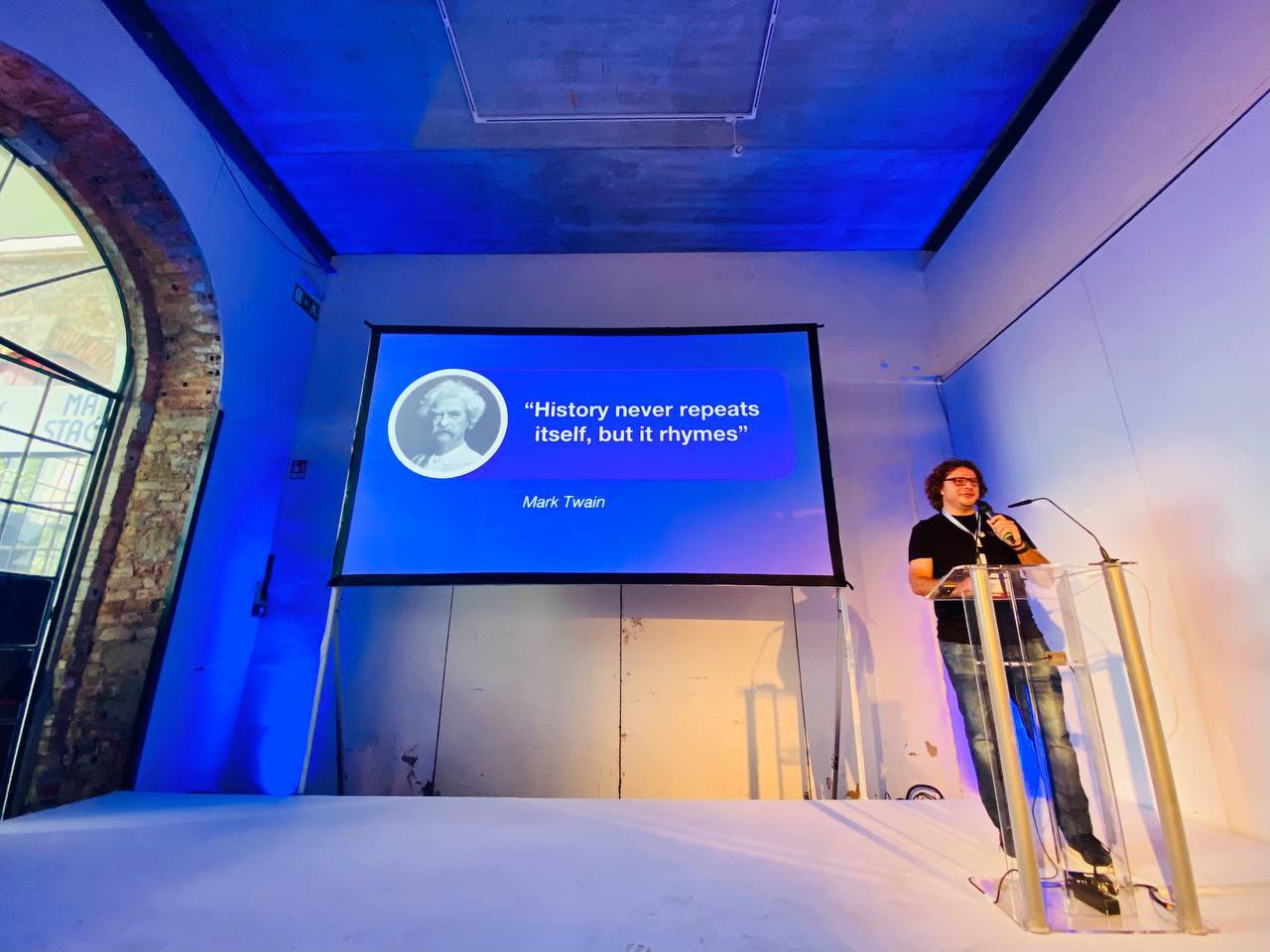
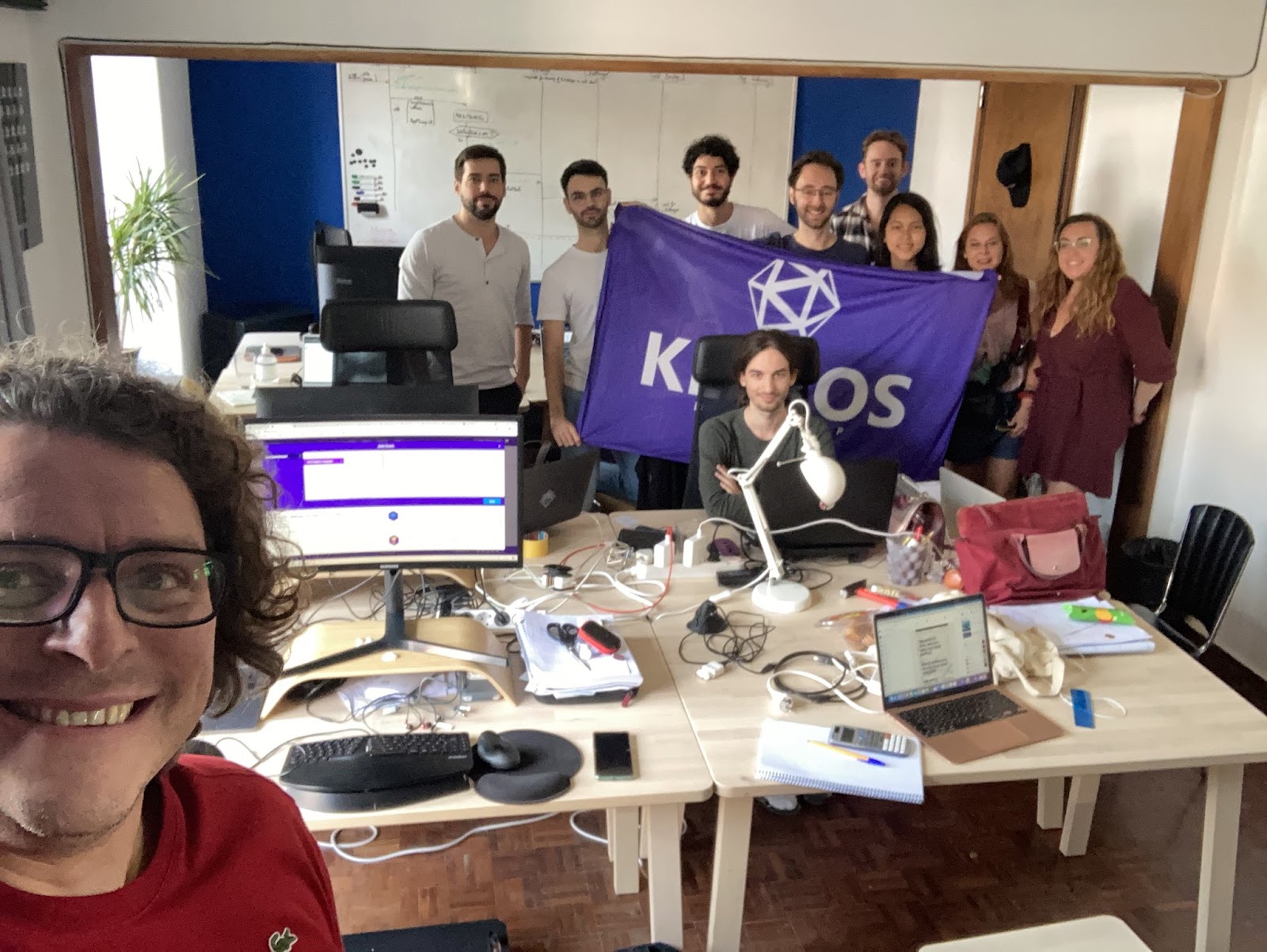
November 2021
- Kleros reaches 1000 disputes.
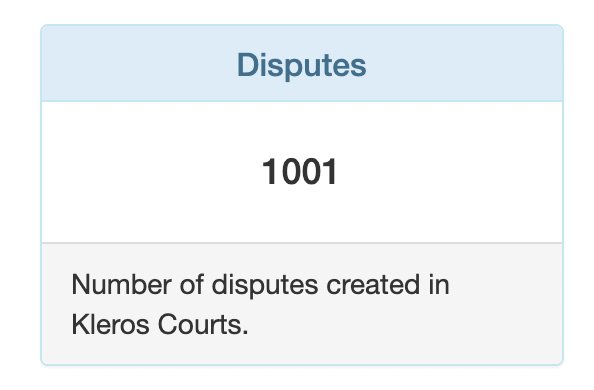
- Launch of the development of the Kleros Court 2.0 with innovations in scalability, incentives design, user experience and much more.
- Proof of Humanity reaches 10,000 registered profiles.
December 2021
- Participants of the 5th Batch of the Kleros Fellowship of Justice are accepted.
- Start of a collaboration with CurioDAO for the verification of real world assets in NFT markets.
January 2022
- Launch of a pilot for the use of Kleros for dispute resolution in NFT markets.
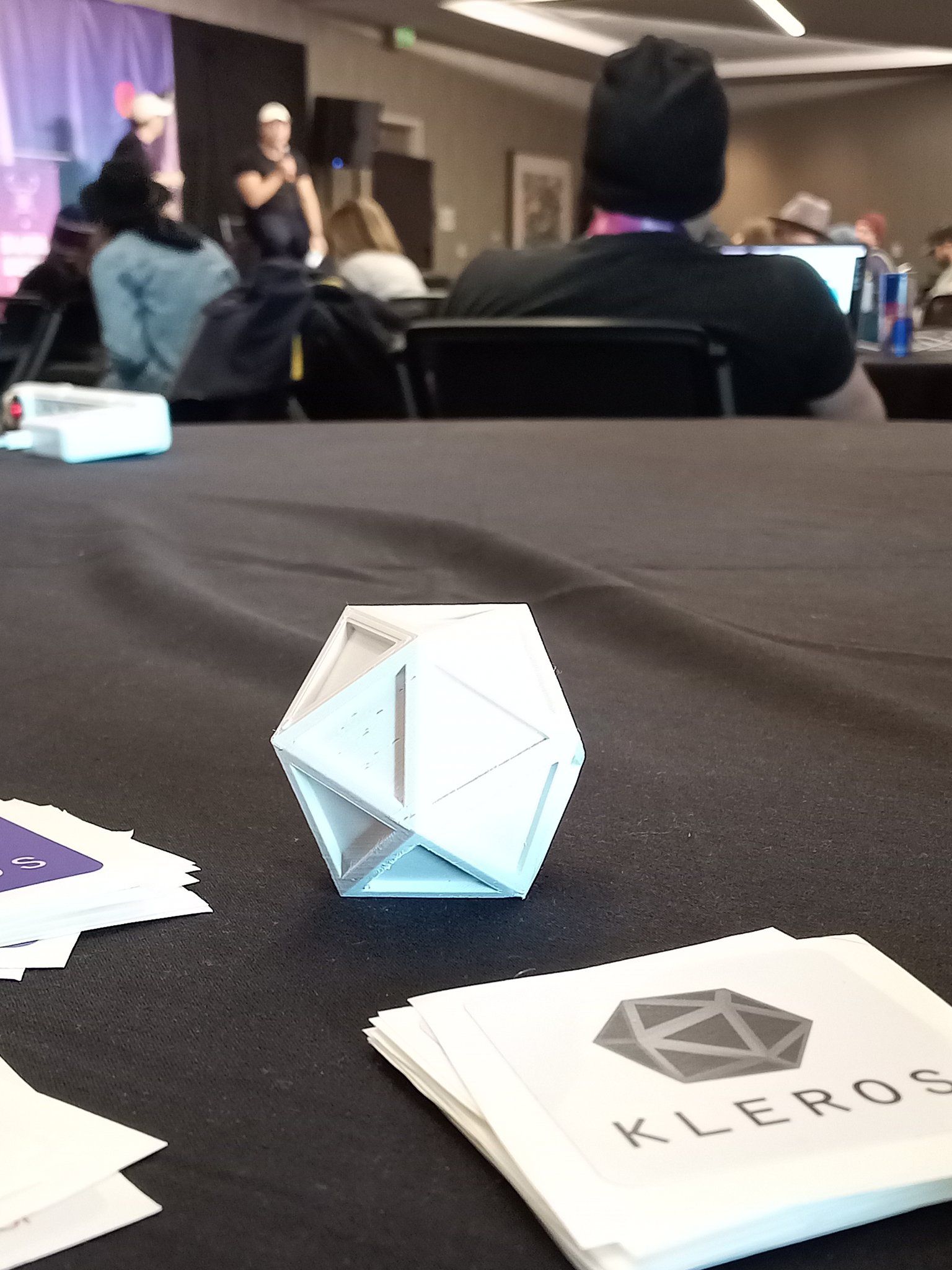
Development Activities
The current version of the Kleros protocol has been live for almost three years. When it was launched, in March 2019, DeFi was in its infancy and few people even knew what an NFT was.
In 2022, the Web3 ecosystem is much more mature and the pandemic transformed the way in which we work, trade... and deliver justice.
In November 2021, we released the specs and officially launched the development of Kleros 2.0. The new release, which is expected for Q3 2022, brings innovations in scalability, economic design, user experience and much more.
Kleros 2.0 will be multi-chain. The core court contract will live on a “home” chain and will be able to pass rulings to arbitrable contracts on other “foreign” chains.
It will also bring a wider selection of voting systems stemming from our research in social choice theory. This includes some highly demanded functionalities such as the possibility to use a system of 1 user/1 vote based on profiles registered on Proof of Humanity.
Kleros 2.0 will also bring mechanisms to punish jurors who misbehave by accepting bribes, cartelling or revealing their votes too early.
The new version comes with a highly modular architecture which will be able to quickly incorporate new functionalities without the need to make changes into the core court contract.
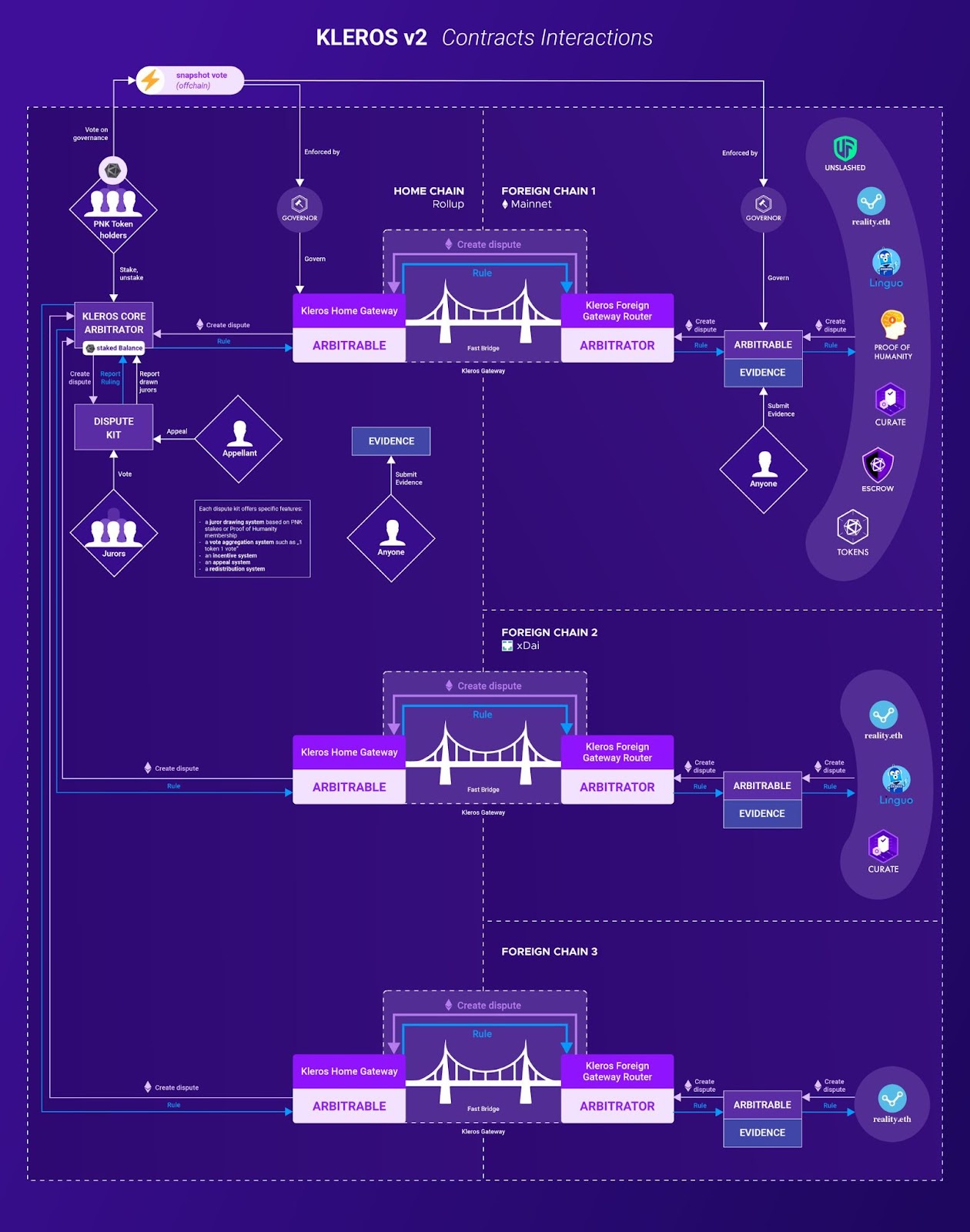
Kleros 2.0 also comes with a beautiful new interface by Plinio. Many workshops were organized with the team in order to discuss the details and collaboratively decide on the features for the new version of the court. Nearly 50 community members participated in testing of the prototype.
Another UX/UI design workshop with the full @Kleros_io team on the road to Kleros Court V2... pic.twitter.com/gsBtH9imXx
— Federico Ast 💧 (@federicoast) June 30, 2021
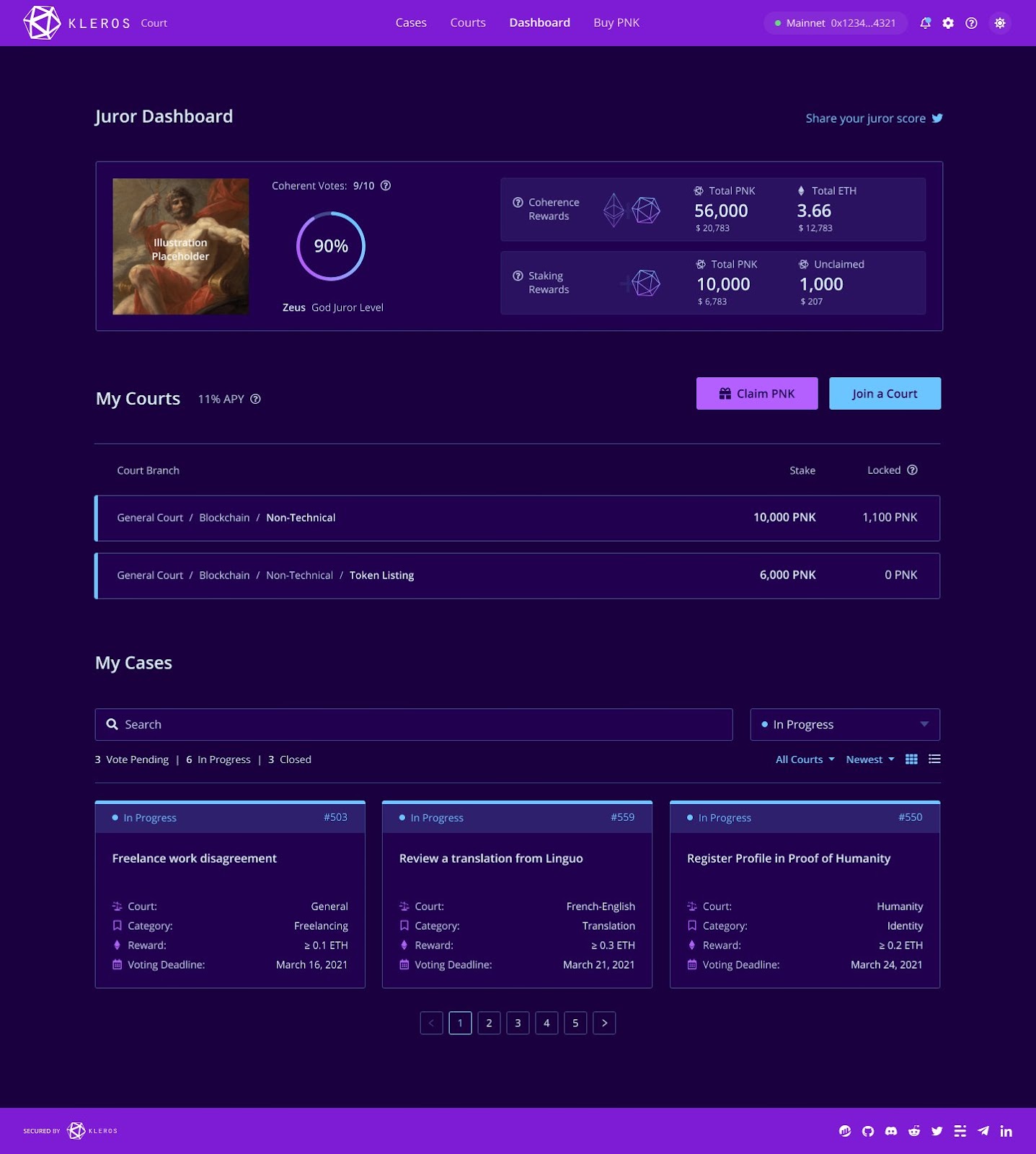
To learn more about the specs for Kleros 2.0, read this article.
Proof of Humanity
In March 2021, the anti-sybil registry Proof of Humanity was launched. This platform uses Kleros curation technology to produce a curated list of unique humans.
Over 14,000 users were registered. All accepted profiles into the PoH registry start dripping a UBI token developed by the Democracy Earth Foundation.
vitalik is in da haus!
— santi.eth 💧 (@santisiri) July 18, 2021
welcome to @proofofhumanity and $ubi @VitalikButerin! 🤠https://t.co/9E5dEZUMAY pic.twitter.com/z4c9DFPqbE
Some very interesting Kleros cases arose from the PoH registry. For example, one that involved Gitcoin founder Kevin Owocki on whether he was "facing the camera" as it was required by the rules.
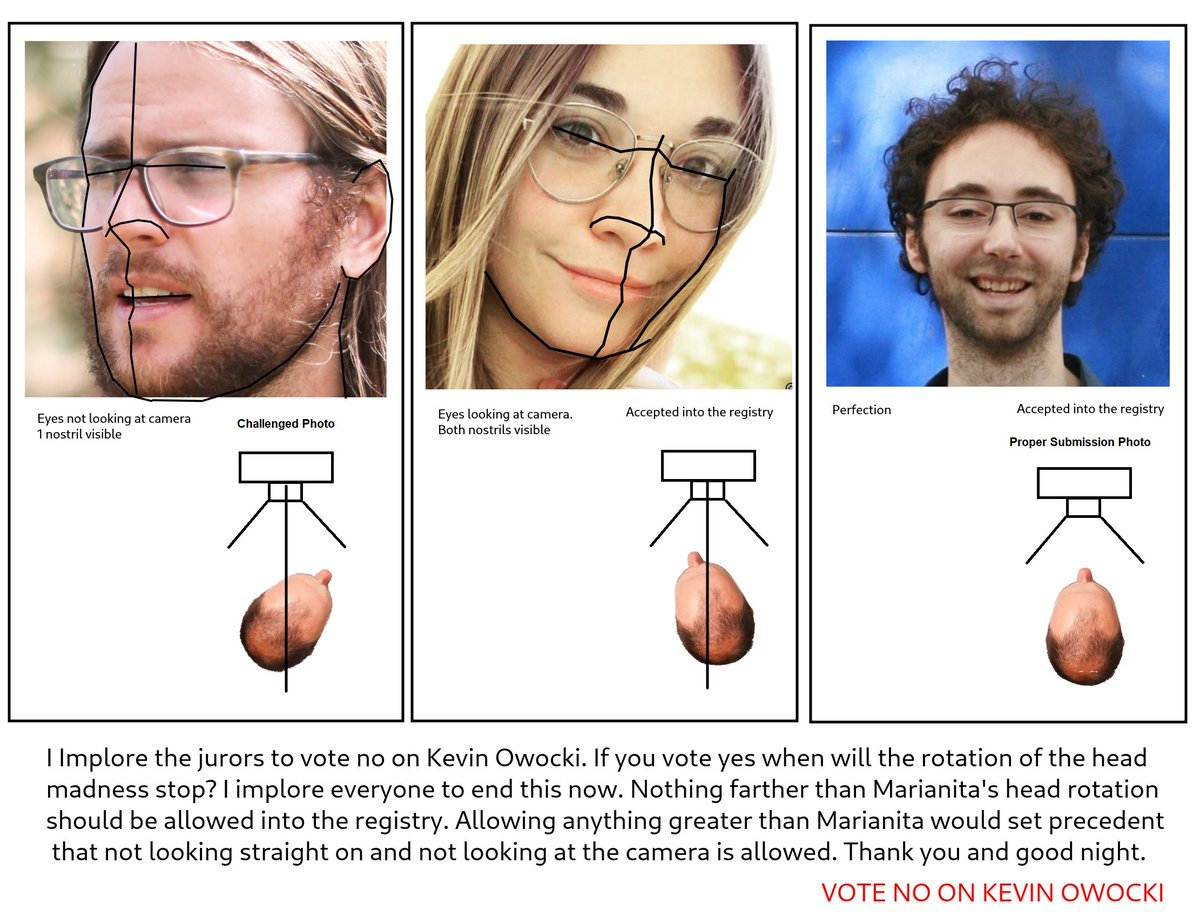
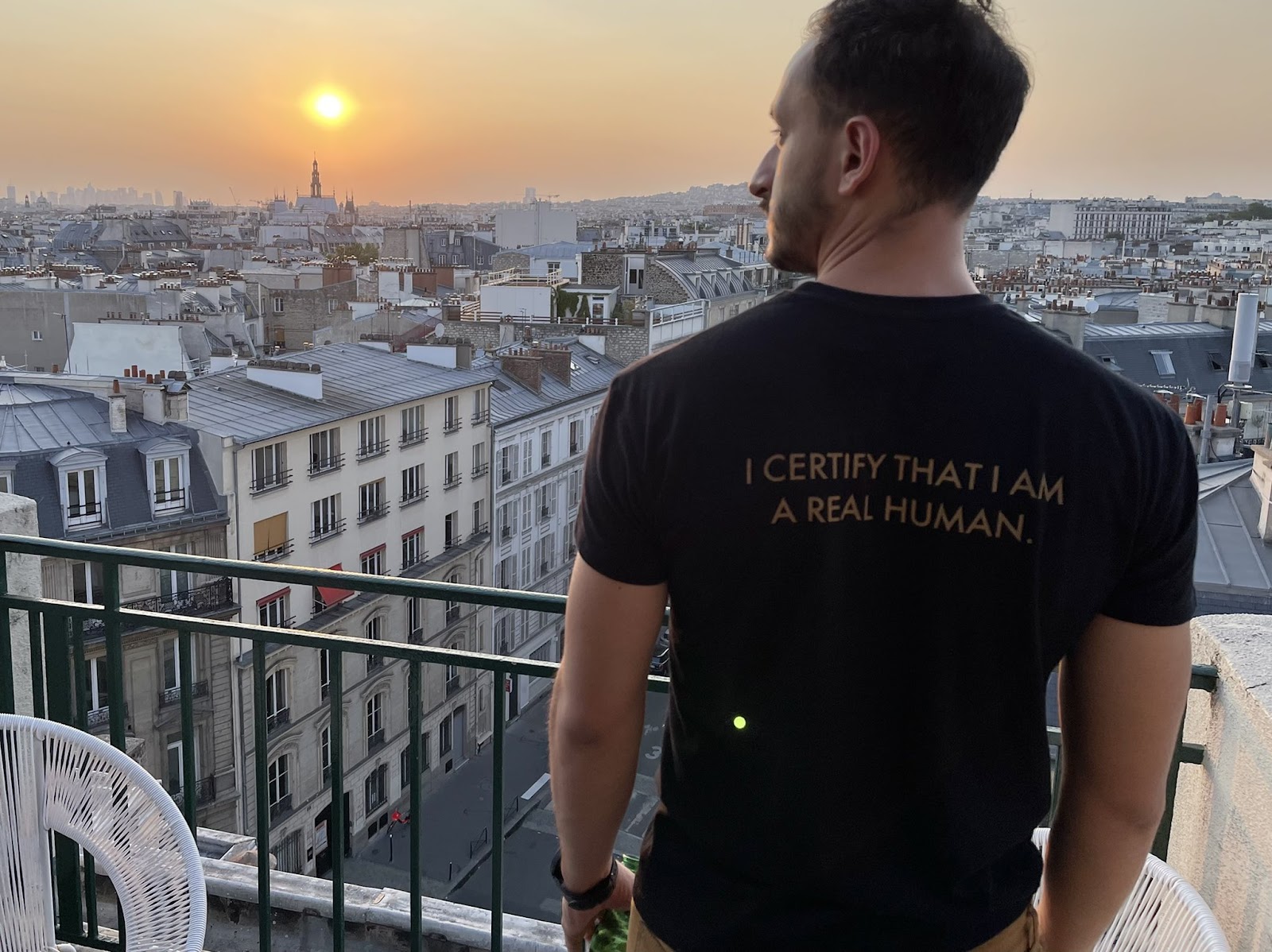
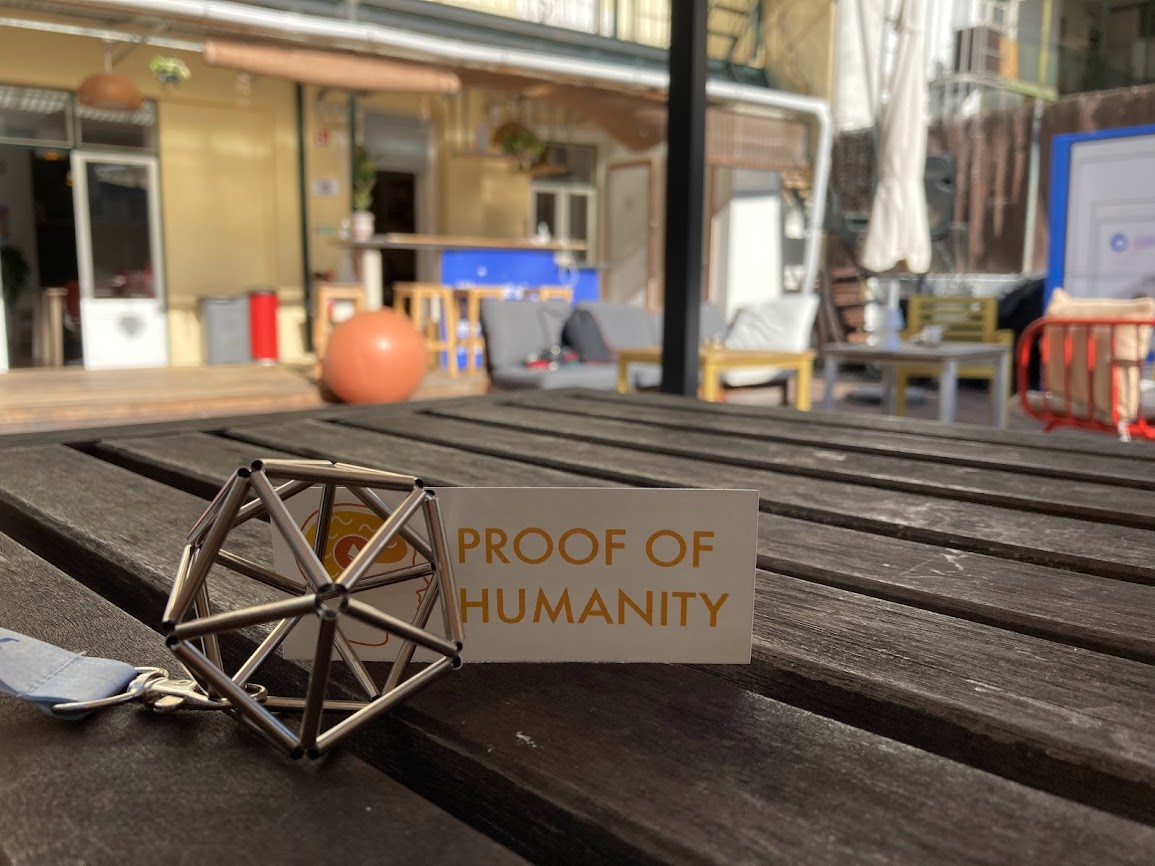
A very dense ecosystem is being built on top of Proof of Humanity, including integrations by Gitcoin, Ripio and Proof of Integrity.
Welfare as we know it today, is prone to inefficiency and, in worst-case scenarios, corruption.
— Proof Of Integrity (@proof_integrity) December 21, 2021
With crypto and integrating with @proofofhumanity, we can change that forever 🧵 pic.twitter.com/bCaOZPln4Y
Research Activities
Kleros has an active research team in fields ranging from cryptoeconomics to law. These materials have been critical for defining the core architecture of Kleros 2.0 and developing new use cases. Our research is published in different outlets for the benefit of the wider community.
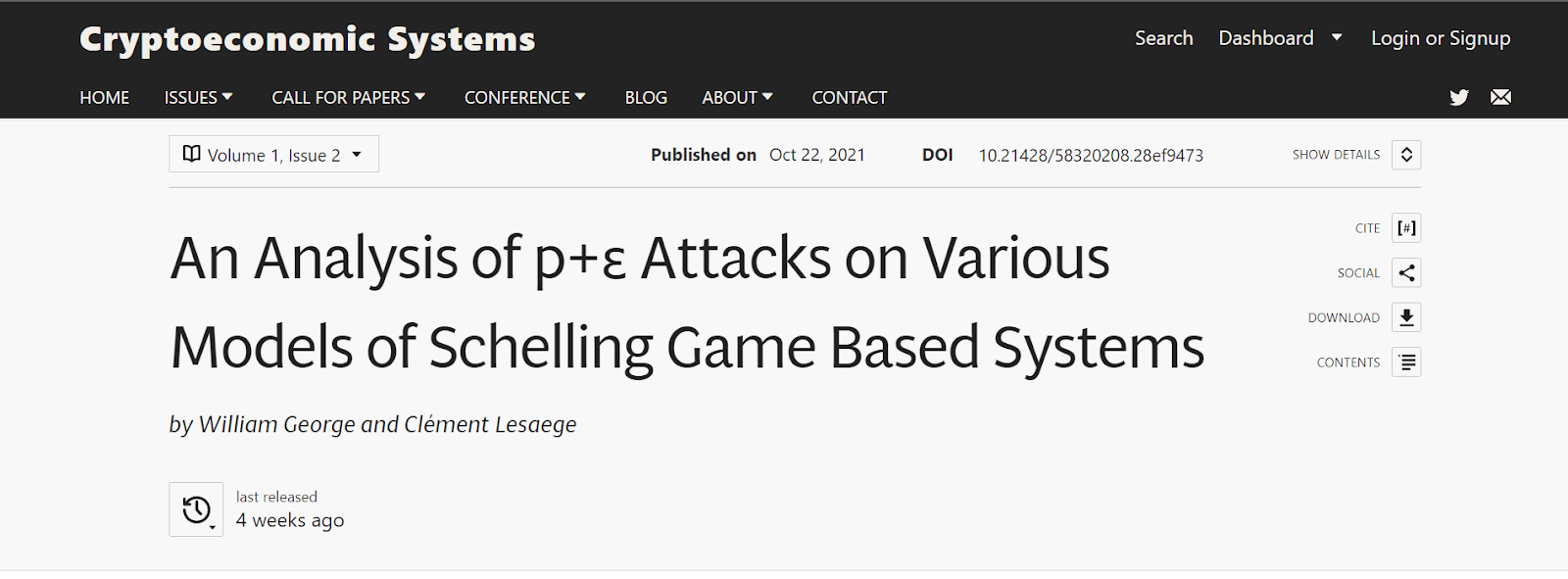
Our research team is involved in the current debates within the Ethereum ecosystem. In September, a controversy arose between Nathan Schneider and Vitalik Buterin on governance and cryptoeconomics. Here is our director of research’s take on the matter: Kleros and the Advantages and Limitations of Cryptoeconomics.
Kleros also has an active community of researchers on different areas of the protocol.
Some academic pieces about Kleros:
- “Kleros: A Socio-Legal Case Study Of Decentralized Justice & Blockchain Arbitration” by Luis Bergolla, Karen Seif and Can Eken at the Ohio State Journal on Dispute Resolution, the official law journal of the American Bar Association's Section on Dispute Resolution. December 2021.
- "From cryptocurrencies to cryptocourts: blockchain and the financialization of dispute resolution platforms" by Matthew Dylag and Harrison Smith. Published at the Information, Communication & Society journal. June 2021.
- "Adjudication with Rational Jurors" by Ioannis Caragiannis and Nikolaj I. Schwartzbach.
- "Decentralized Justice: A Comparative Analysis of Blockchain Online Dispute Resolution Projects" by Yann Aouidef, Federico Ast and Bruno Deffains. Published at Frontiers in Blockchain.
- "Uncertainty and dispute resolution for blockchain and smart contract institutions" by Bronwyn E. Howell and Petrus H. Potgieter. Published at the Journal of Institutional Economics by Cambridge University Press.
- "Designing Ethical Online Dispute Resolution Systems: The Rise of the Fourth Party" by Leah Wing, Janet Martinez, Ethan Katsh and Colin Rule. Published at the Negotiation Journal at Harvard Law School.
- "Blockchain Matters—Lex Cryptographia and the Displacement of Legal Symbolics and Imaginaries" by Katrin Becker. Published at the Law and Critique journal.

The Kleros Fellowship of Justice welcomed its' 5th cohort and keeps fostering high level research about the use cases of the Kleros protocol. In this particular cohort, there was a high interest in the use of Kleros for resolving disputes in the context of NFT markets.
Here are some testimonials from participants in previous batches of the Fellowship.
The fourth batch of the Fellowship had a special track in collaboration with the Maker Foundation for the use of Kleros for compliance for real world assets in the Maker protocol.
Securities lawyer Marvin Coleby was chosen for this track and these are the results of his research:
Community Development
The team keeps spreading the message of decentralized justice in different venues and formats. Check some of the highlights:
- "How to Write Your DAO Constitution and Become a Founding Father", an article by Jimmy Ragosa.
- “Decentralized Courts: A Legitimate Solution?”. An article about Kleros and other decentralized justice protocols published in the Decentralized Law newsletter by BanklessDAO.
- "Is There an App for That? Arbitration of Smaller Commercial Disputes in the Technology Sector". A cross-discipline panel with Myriam Seers, Sophie Nappert, Amy Schmitz and Colin Rule during the Paris Arbitration Week. A large part of the panel is a discussion about Kleros approach to dispute resolution.
- "Why DeFi Insurance Needs an Ethereum-Native Claims Arbitrator" by Jimmy Ragosa.
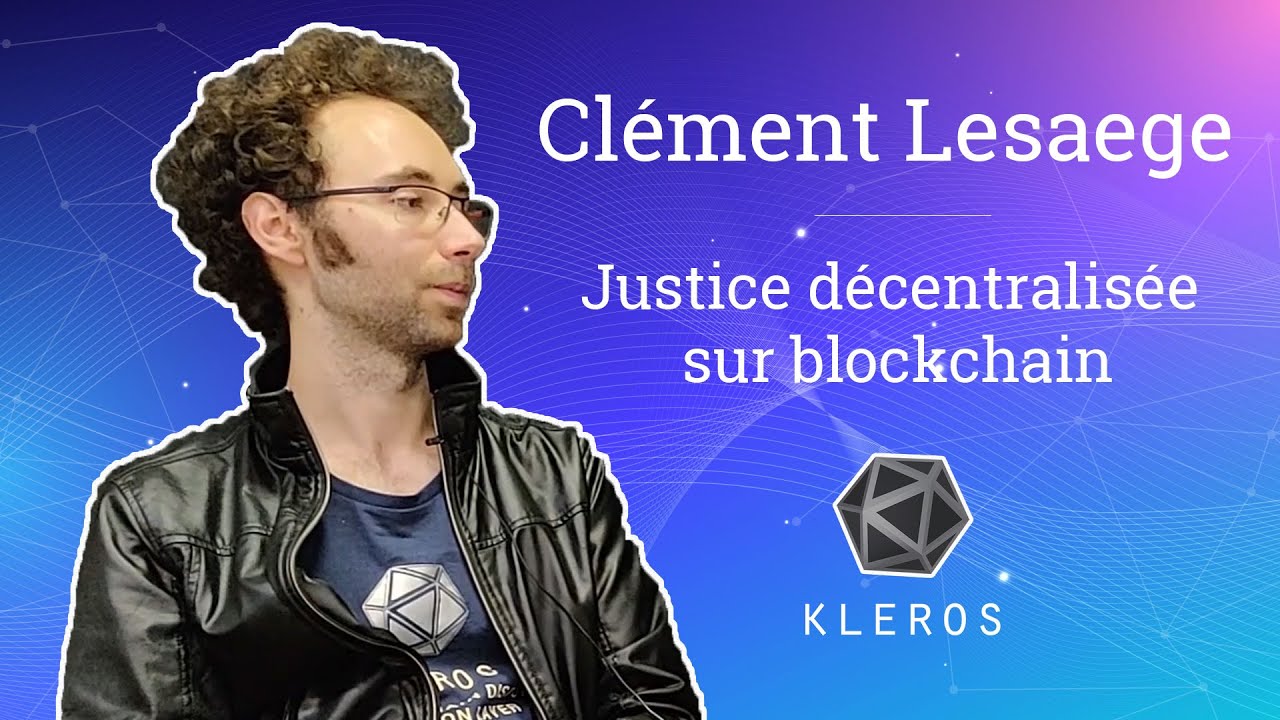
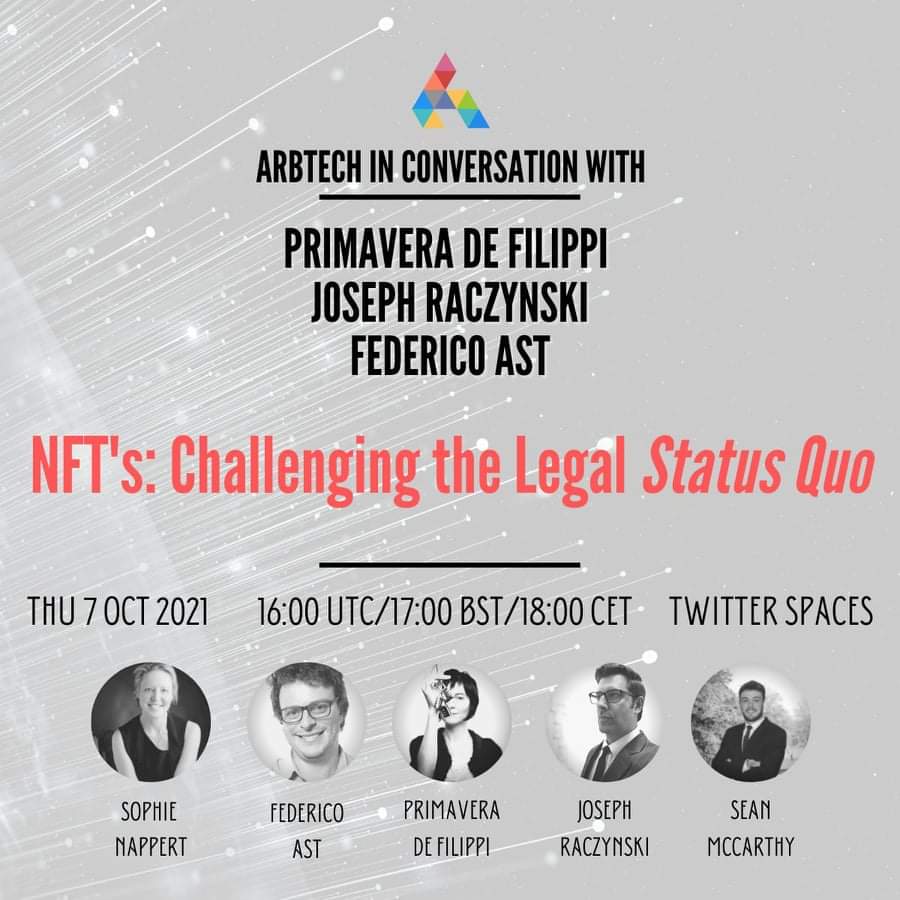
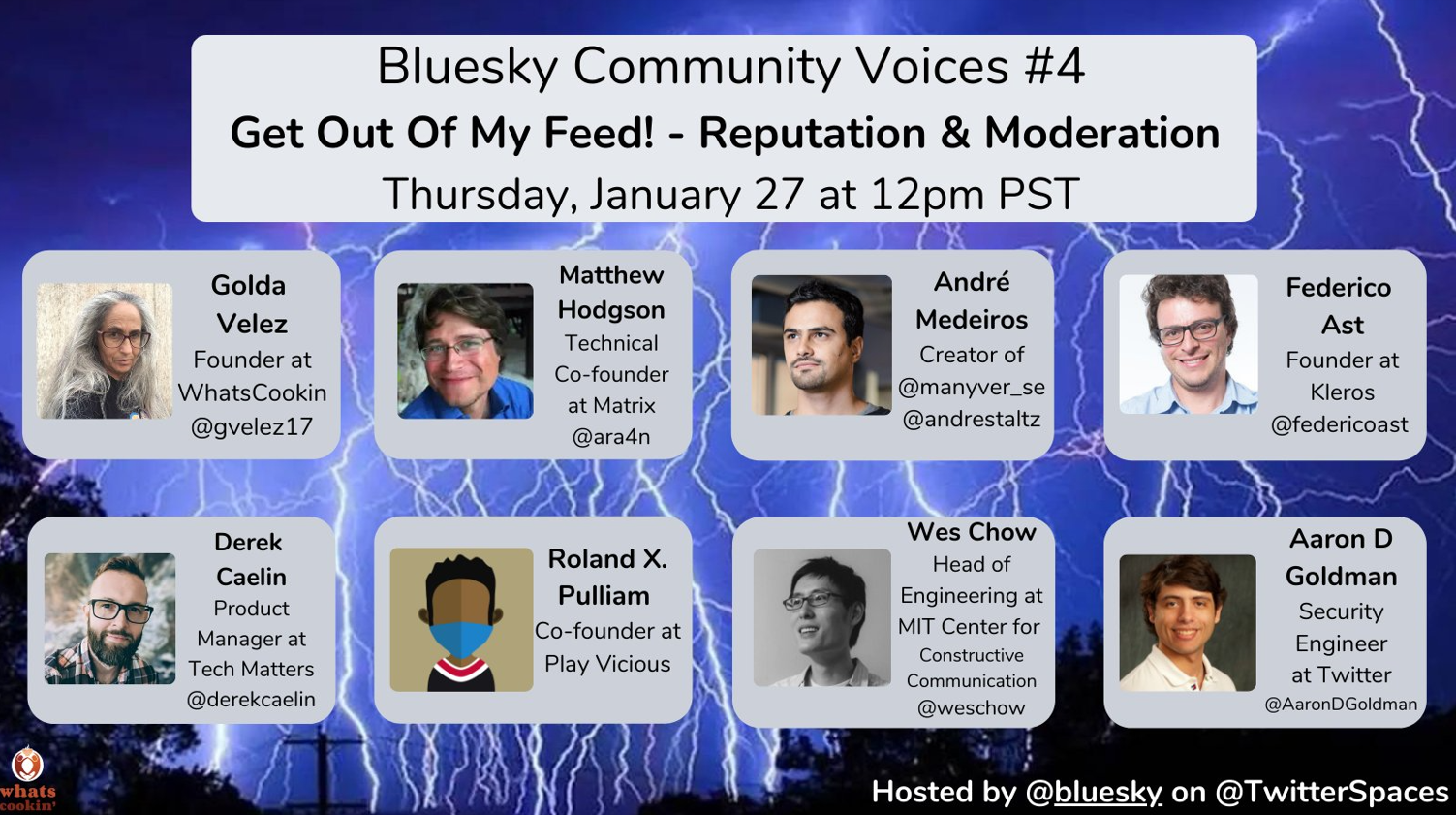
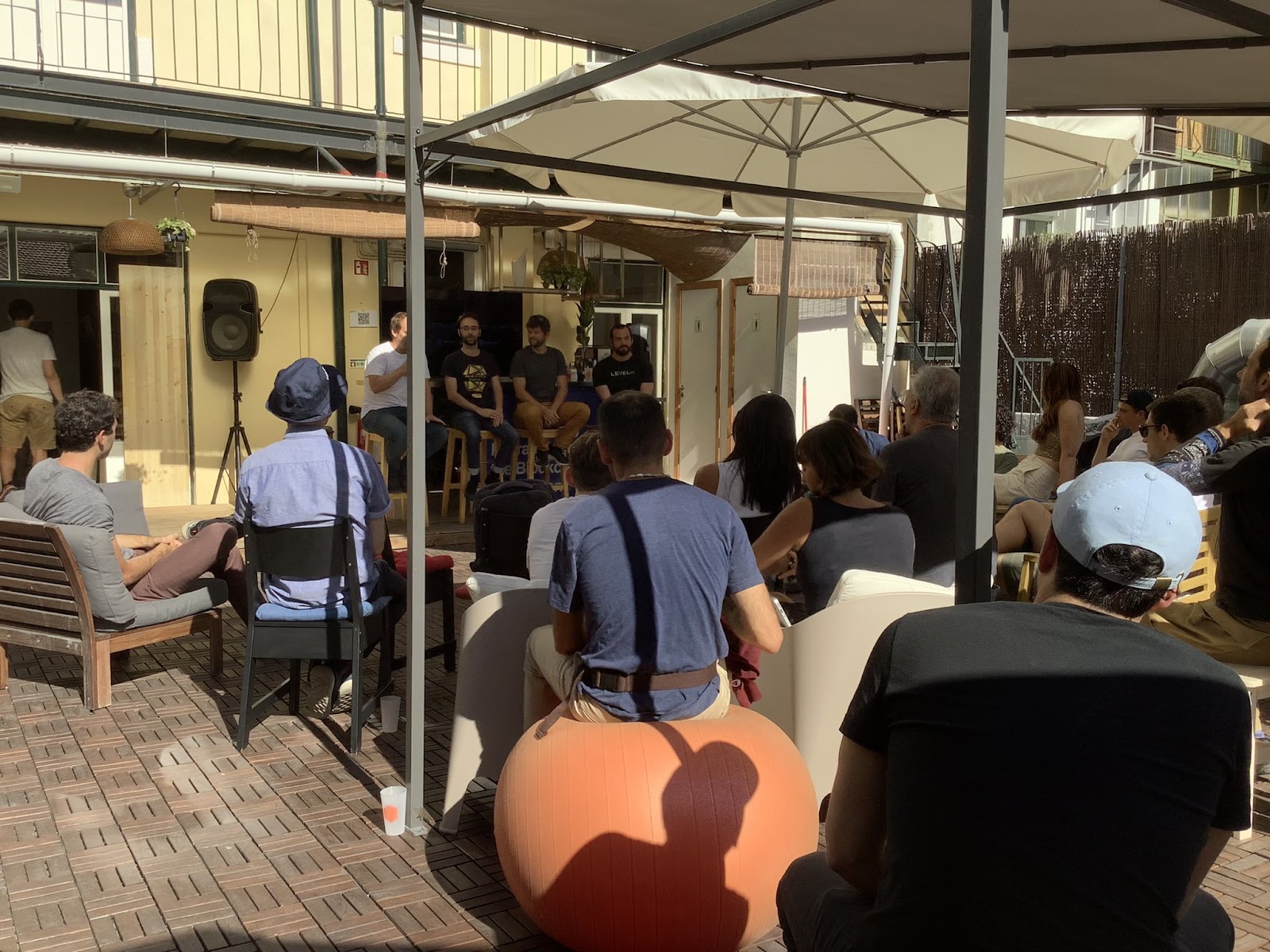
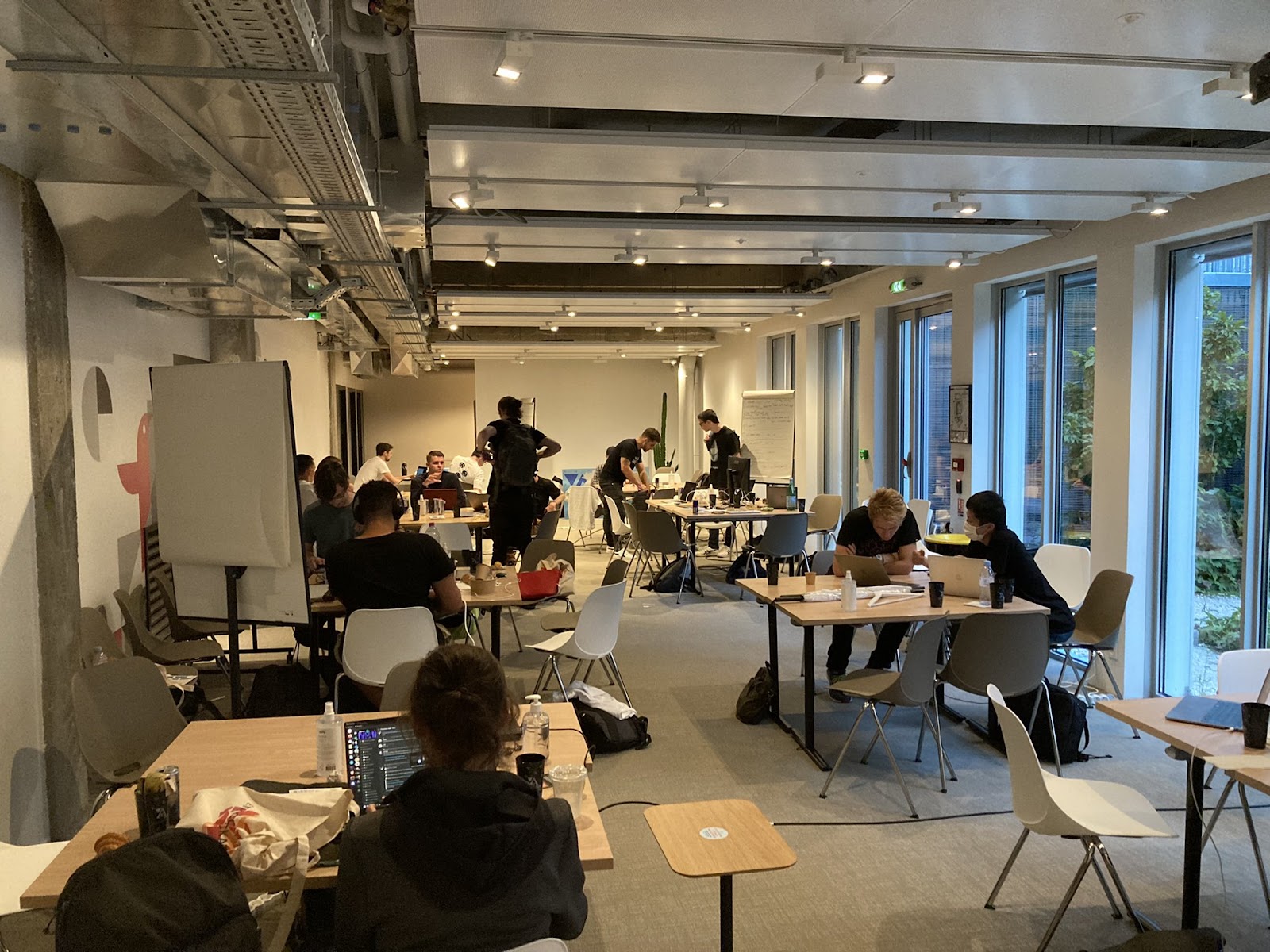
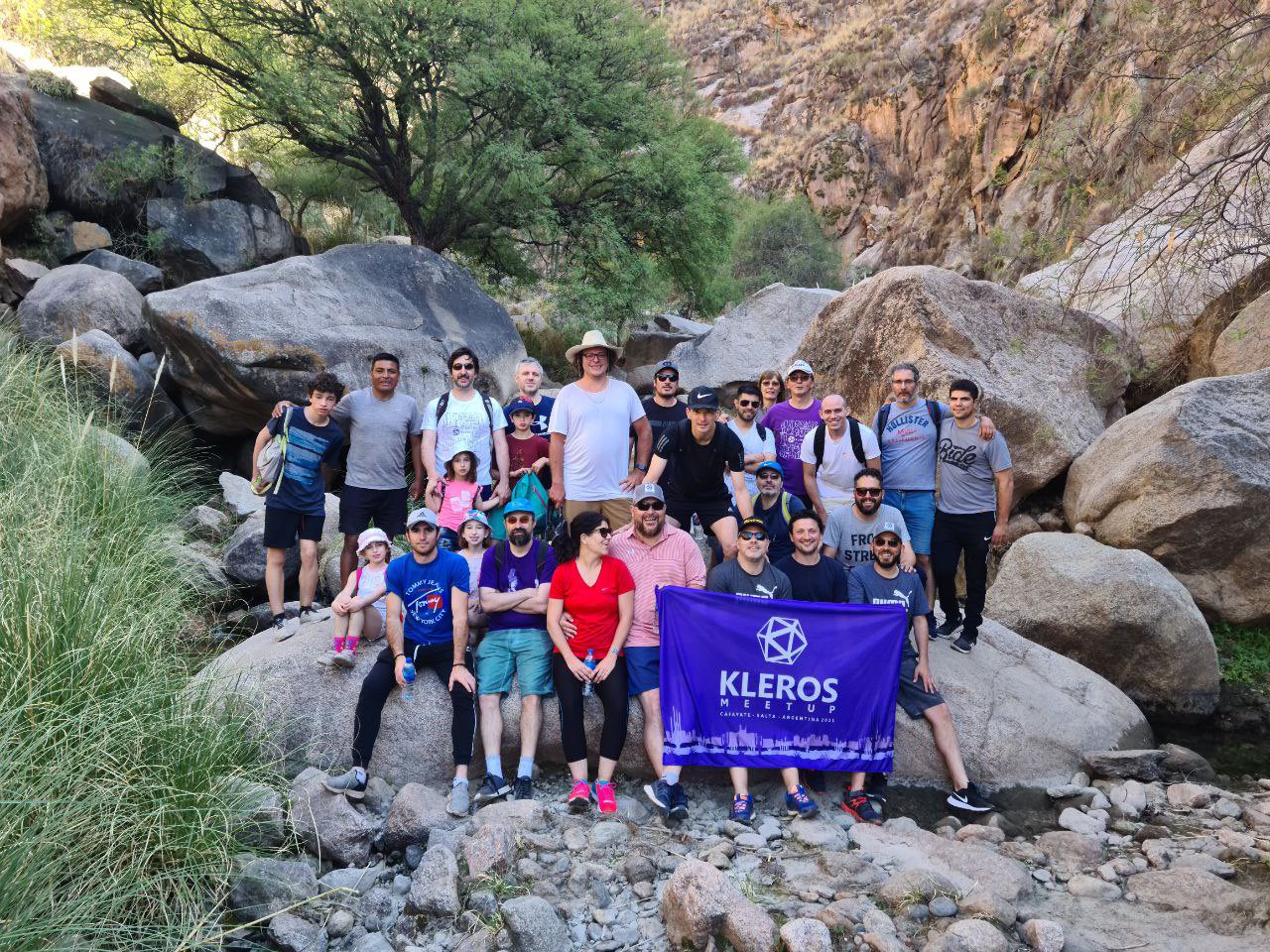
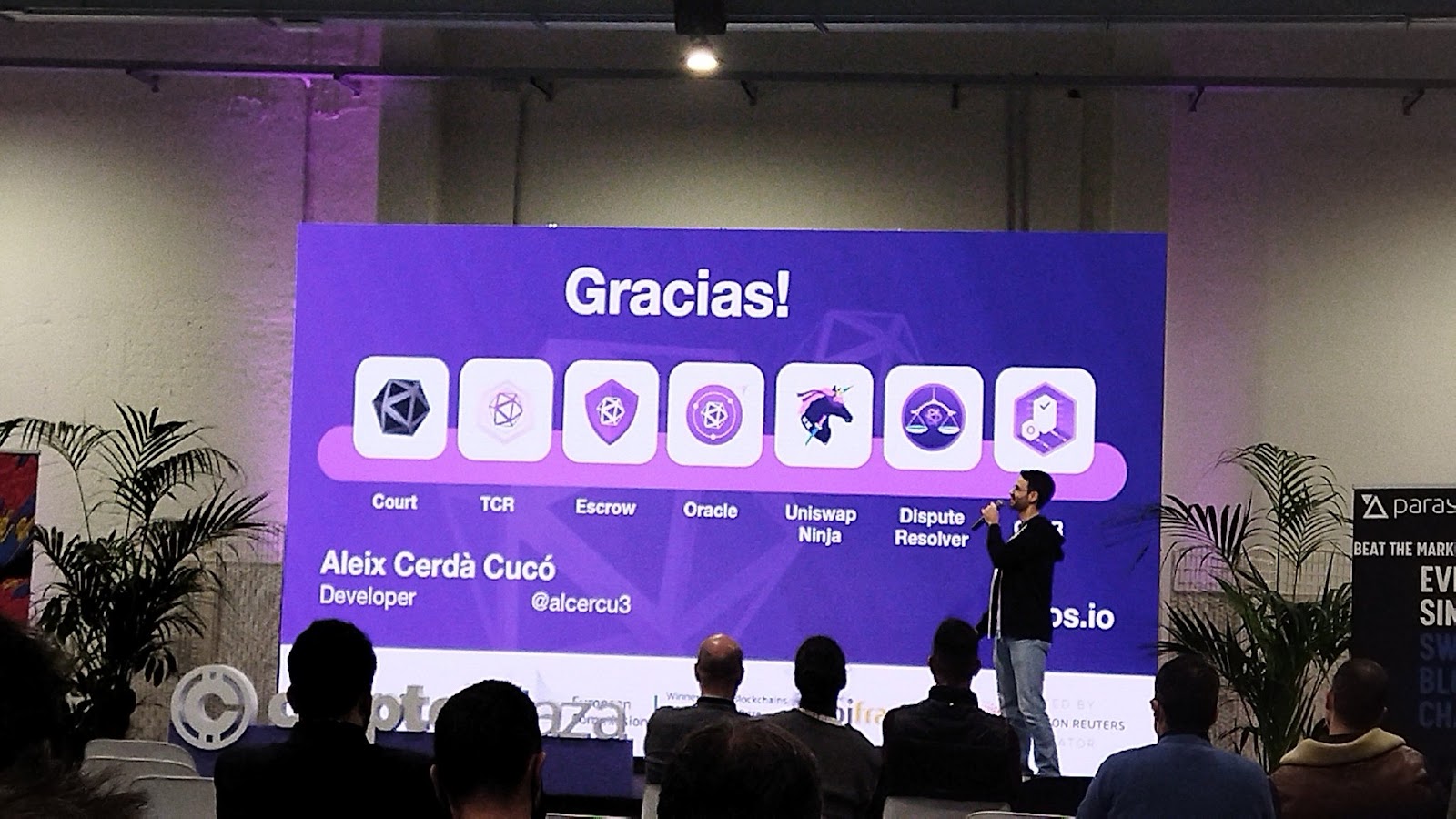
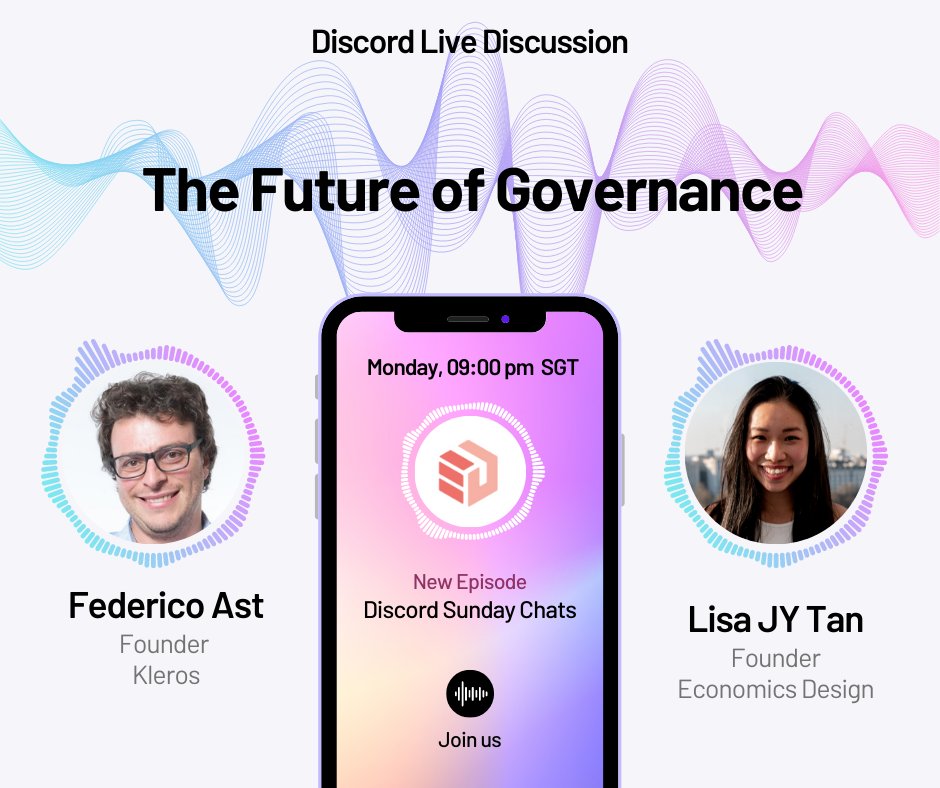
The Launch of the Kleros Incubator
In July 2021, we launched the application process for the first batch of the Kleros incubator, a program which provides company building and financial support to teams building on top of the Kleros protocol.
Dozens of teams applied to the 3 month incubation program in Lisbon including strategy, prototyping, smart contract security, marketing and legal workshops.
Two teams were selected for the first cohort of the incubator: Reactions and OpenVino.
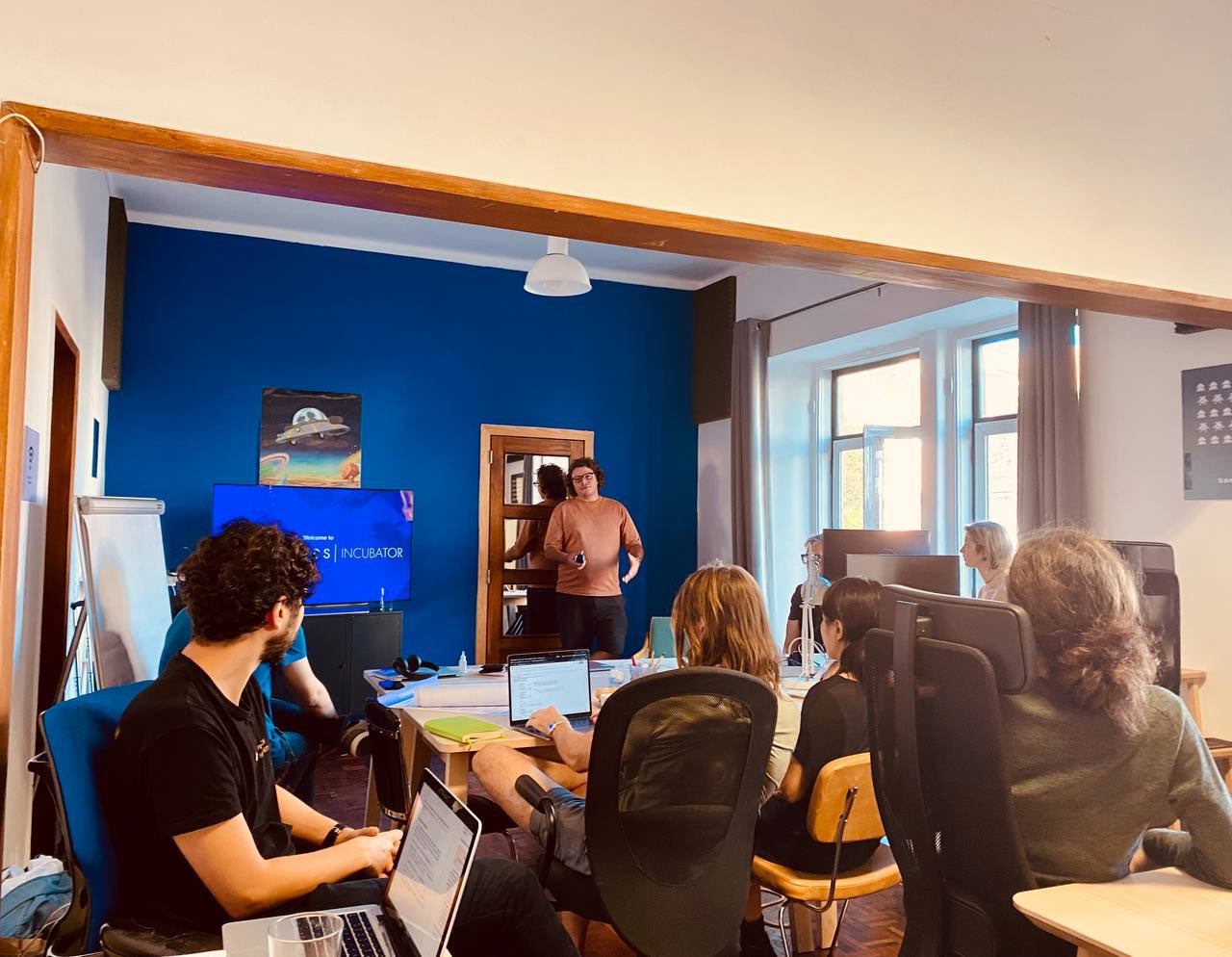
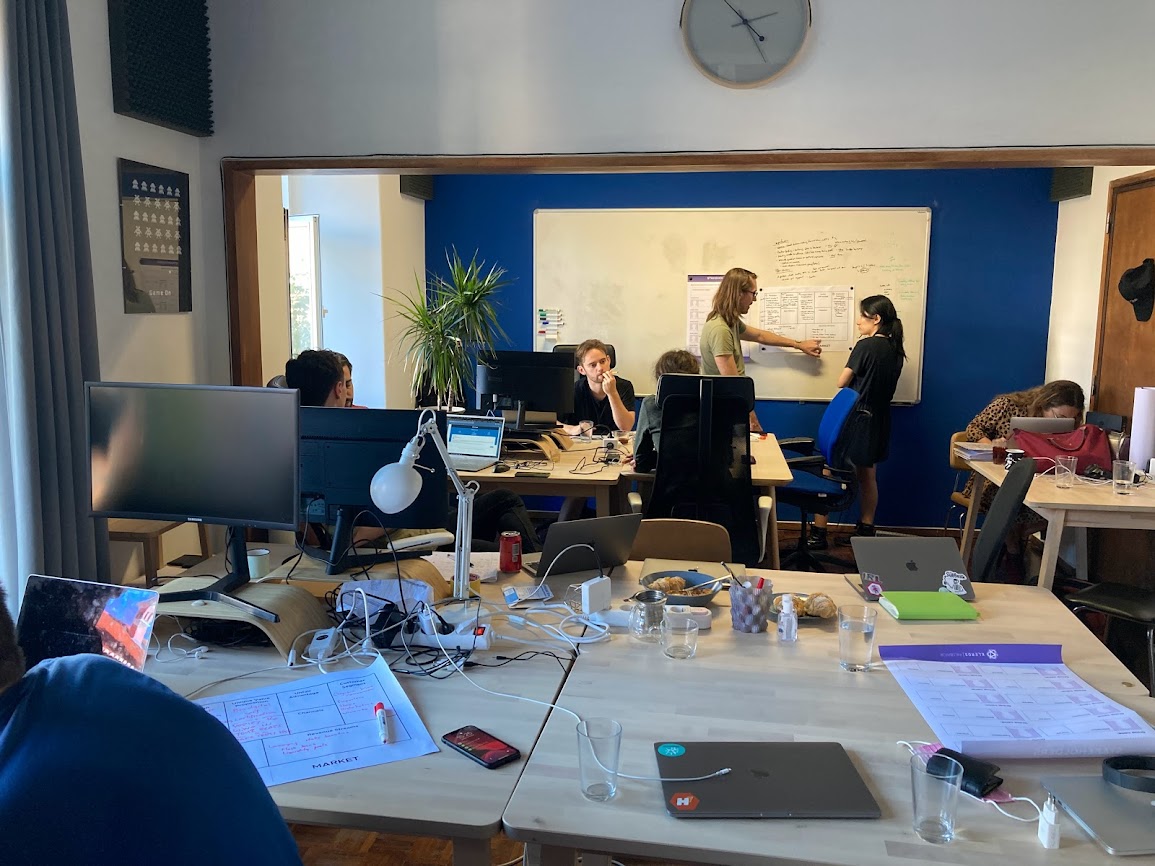
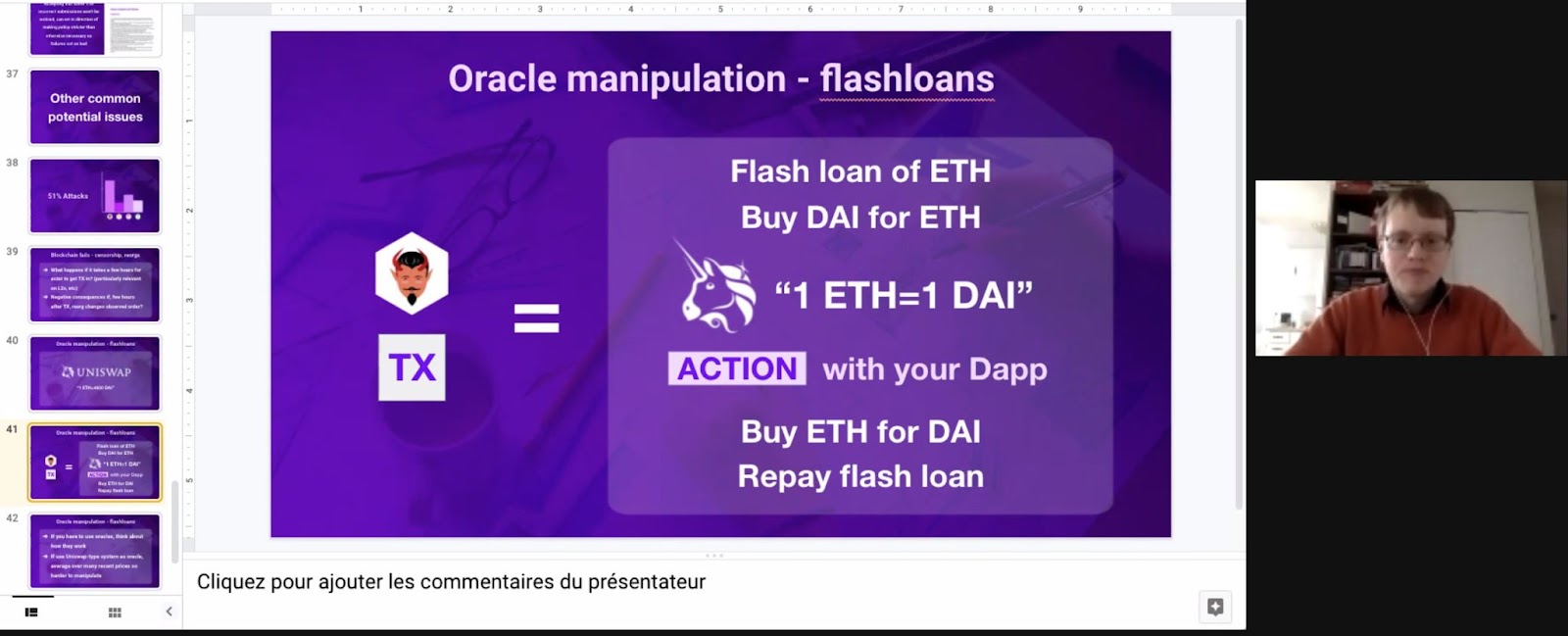
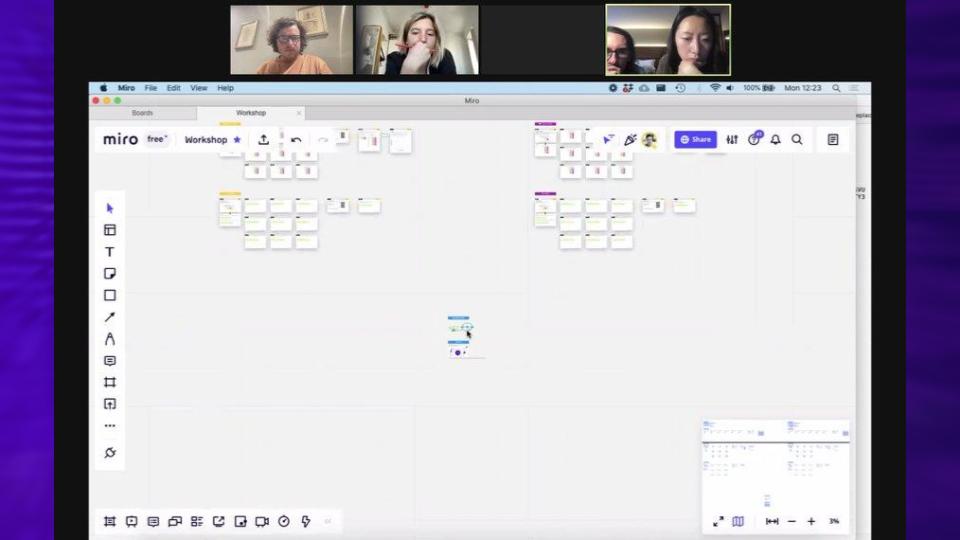
Financials
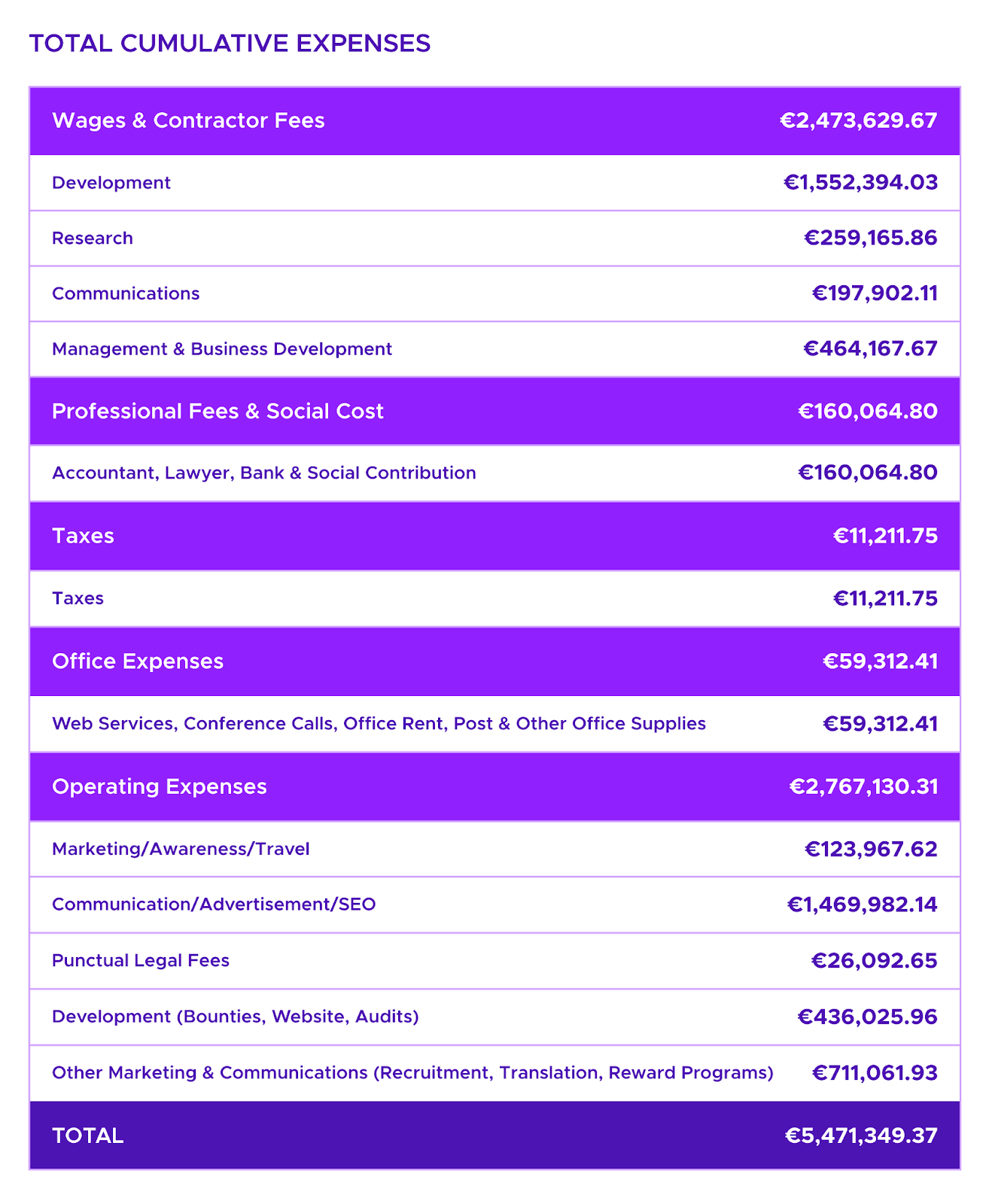
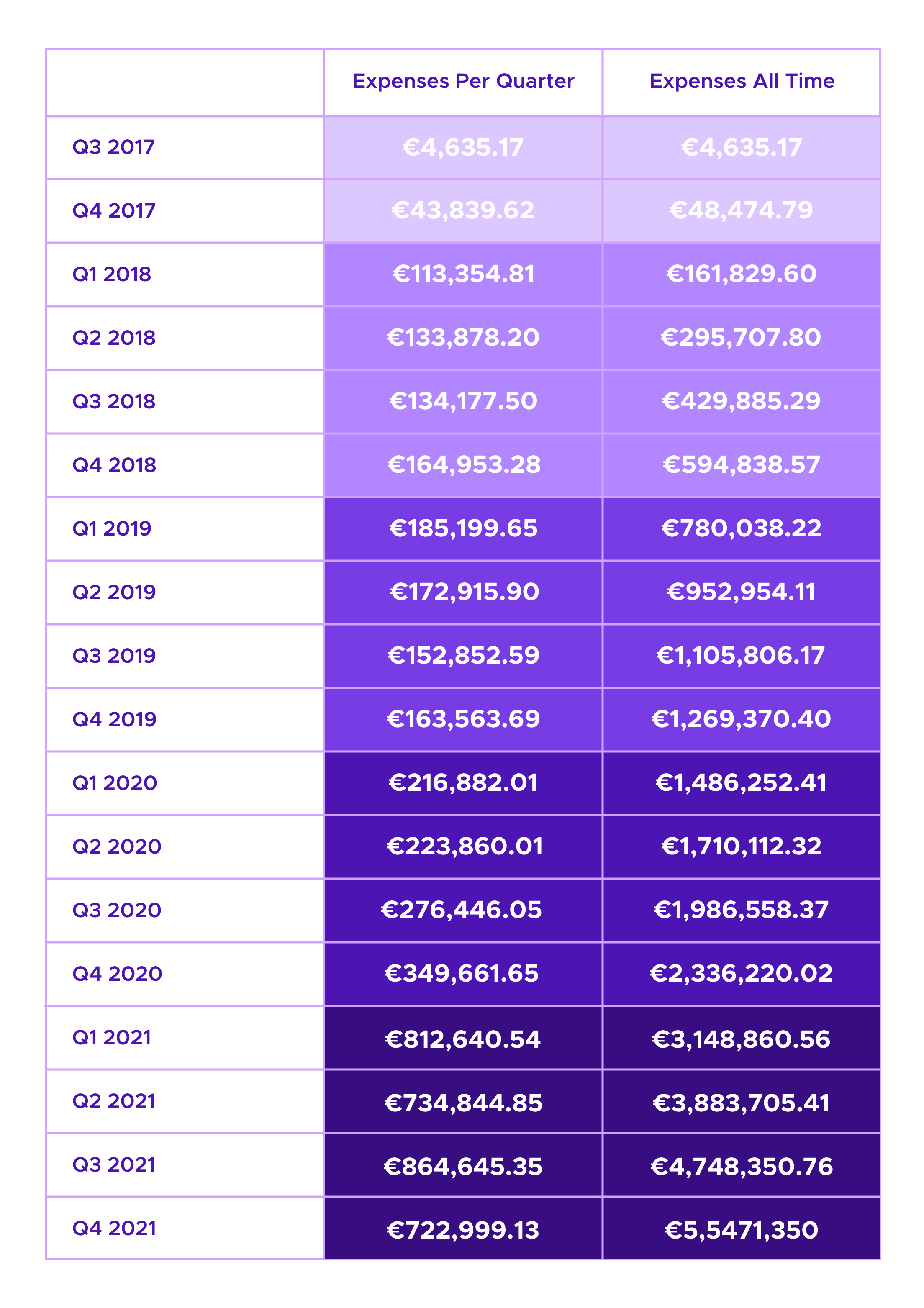
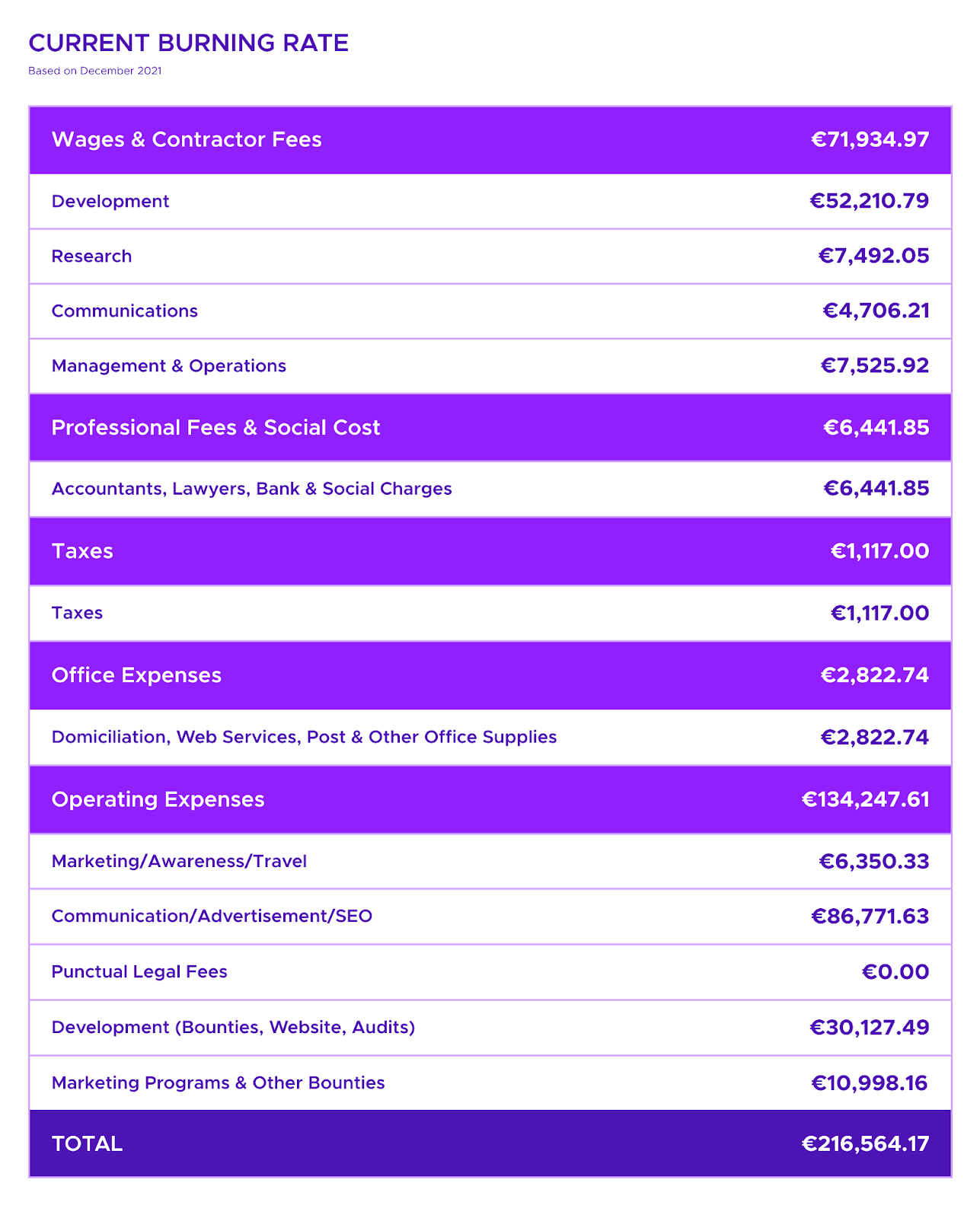
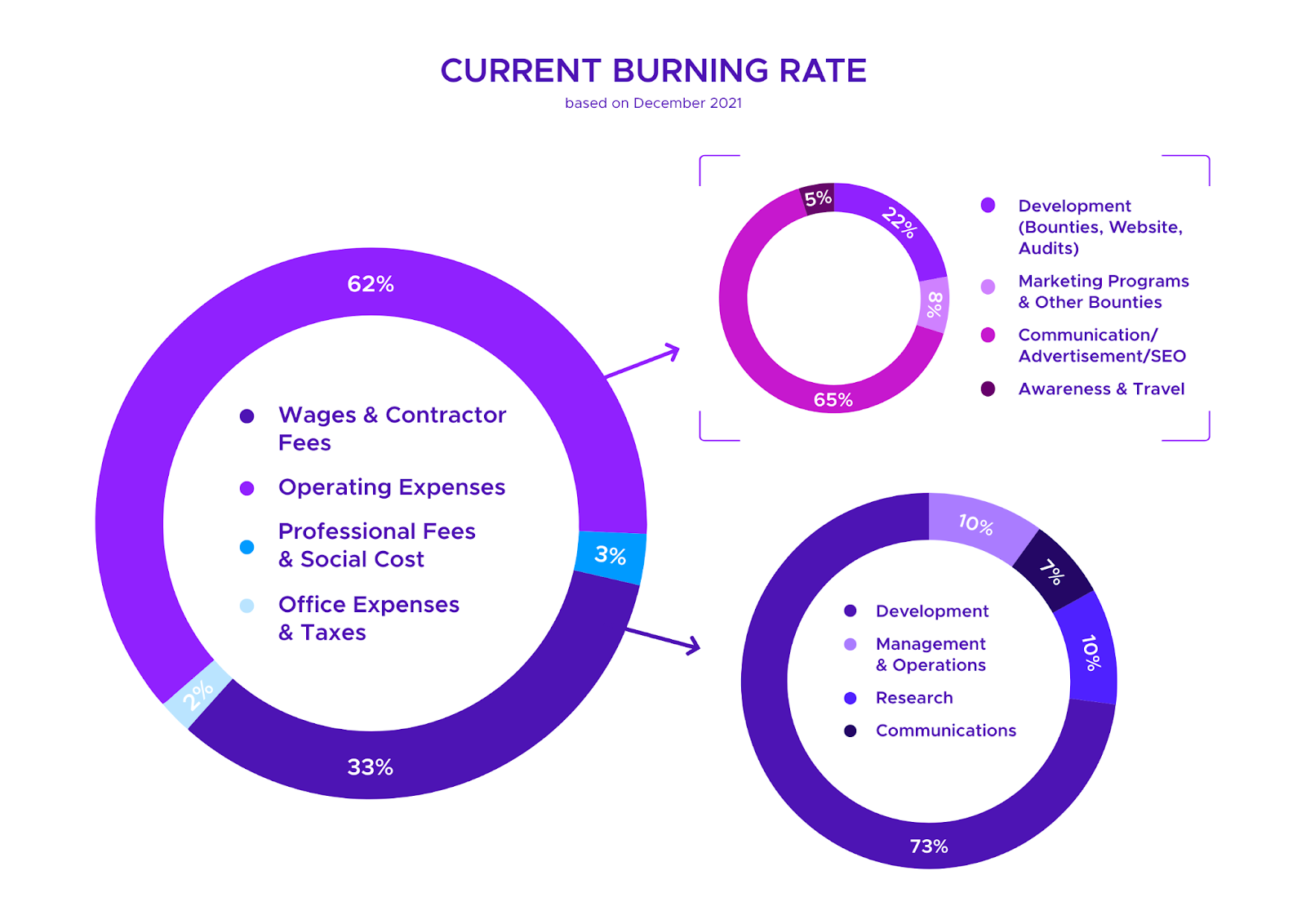
Conclusion
Over the past months, we have continued with our goal of making Kleros a larger part of the Web3 ecosystem. The arrival of Kleros 2.0 will also enable a number of new and massive use cases requiring lower costs such as curation for NFT marketplaces and content moderation.
